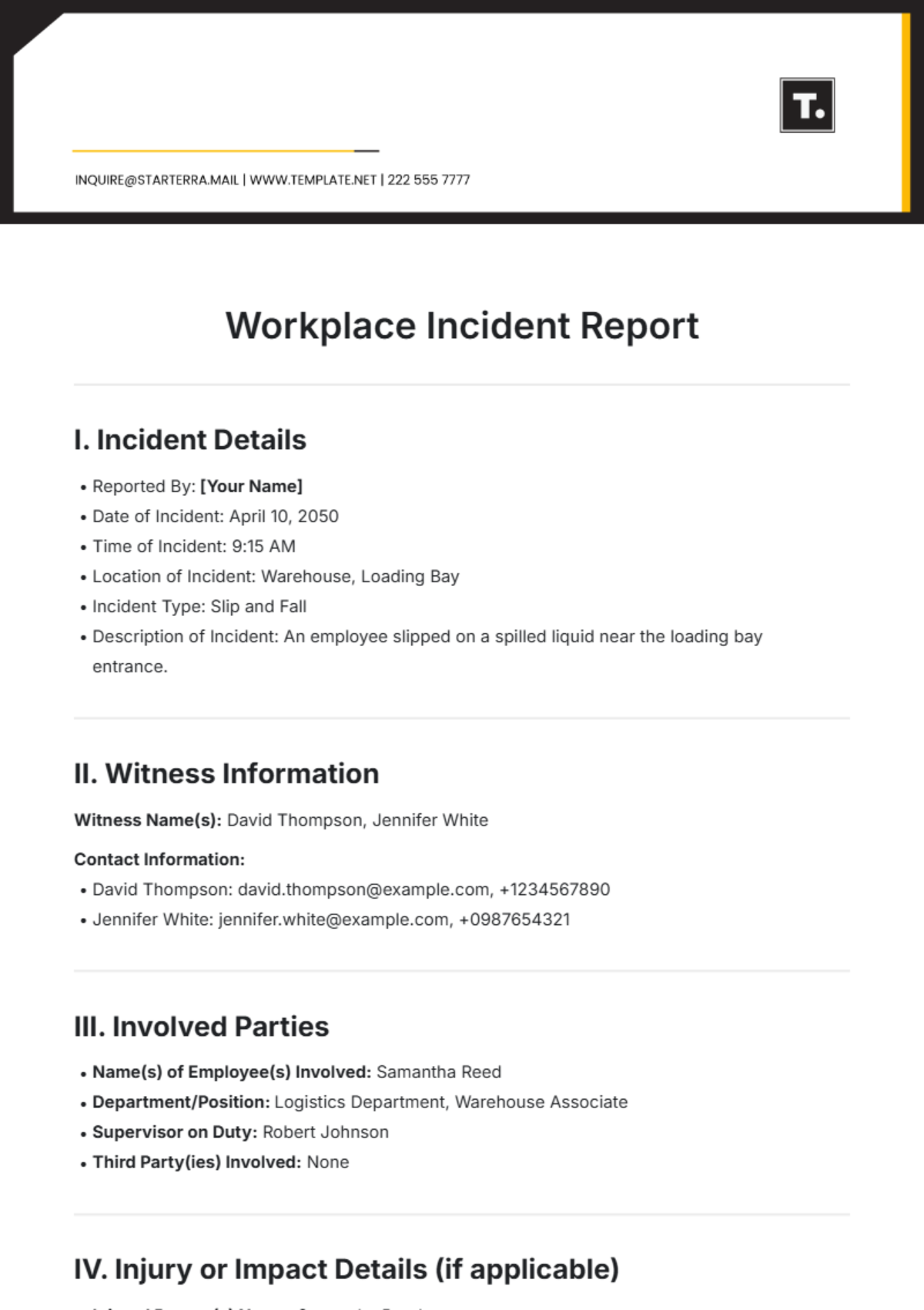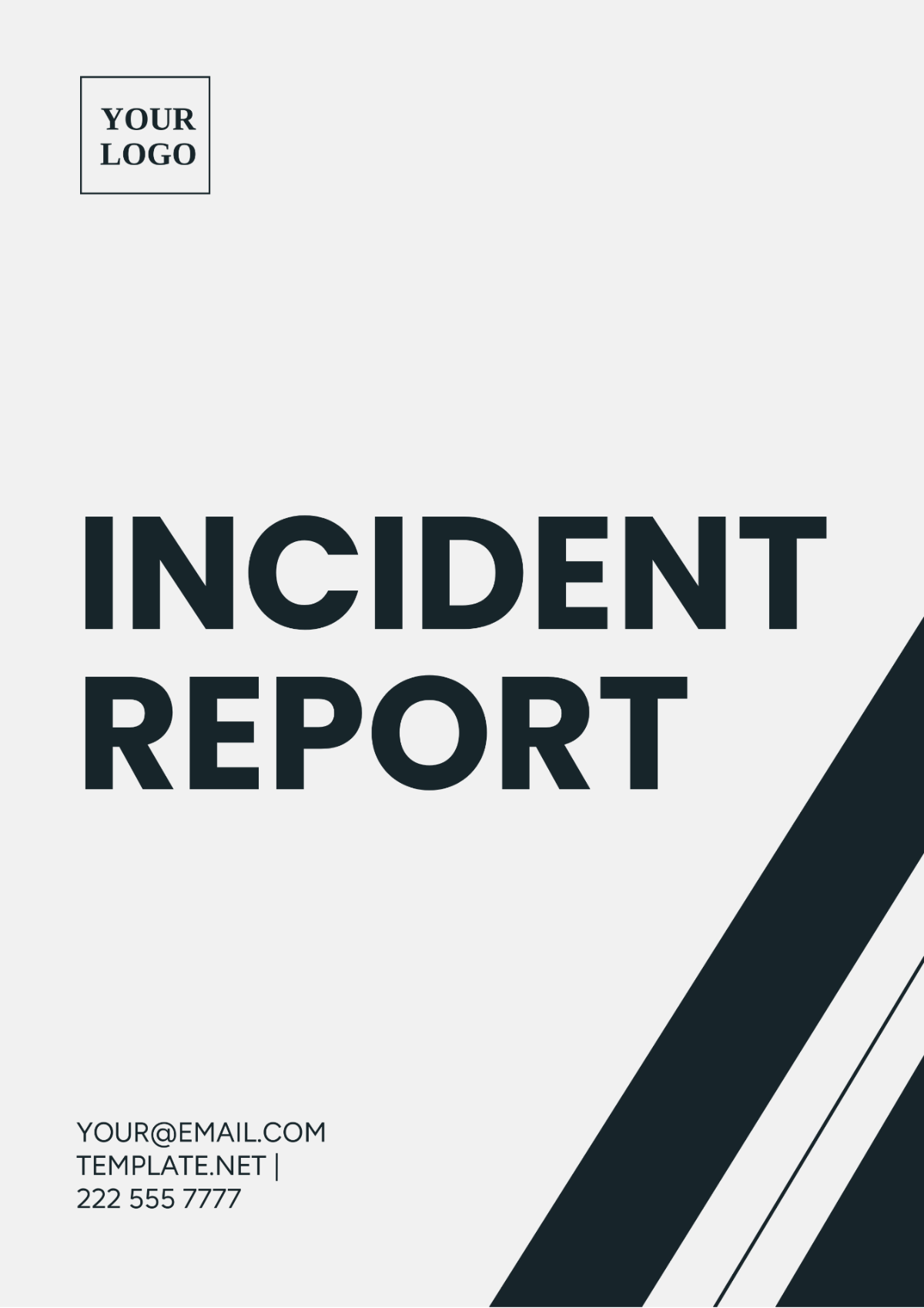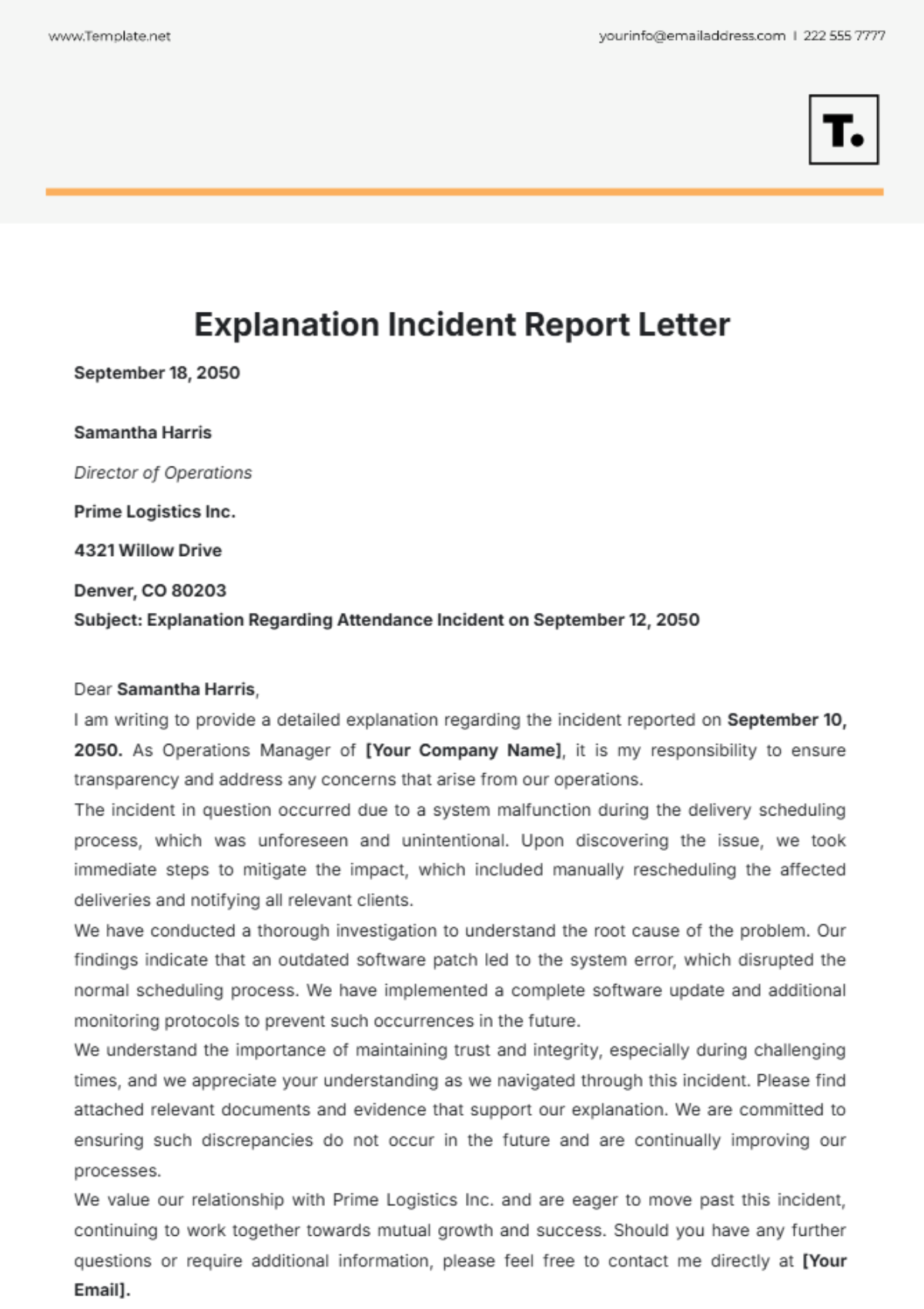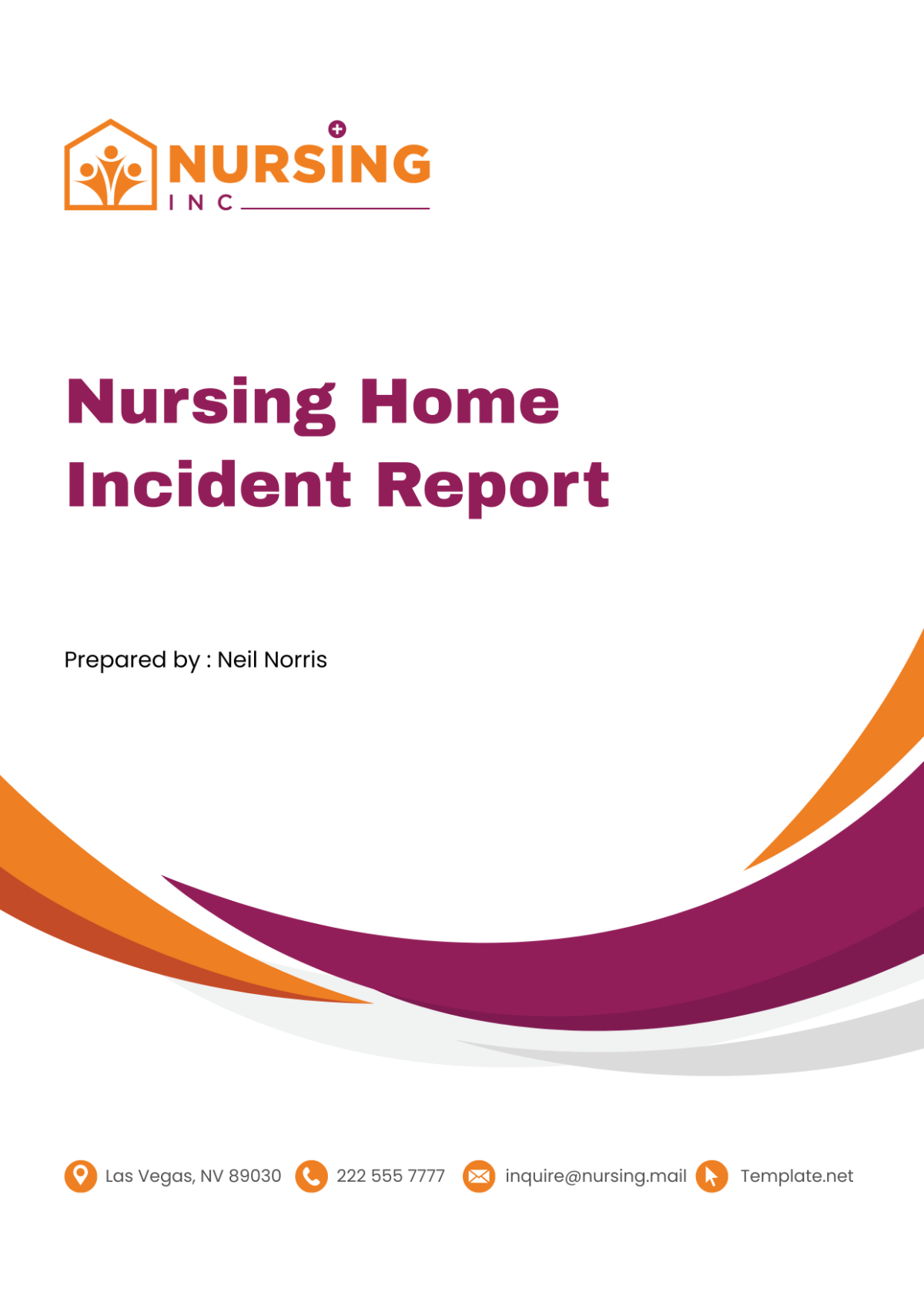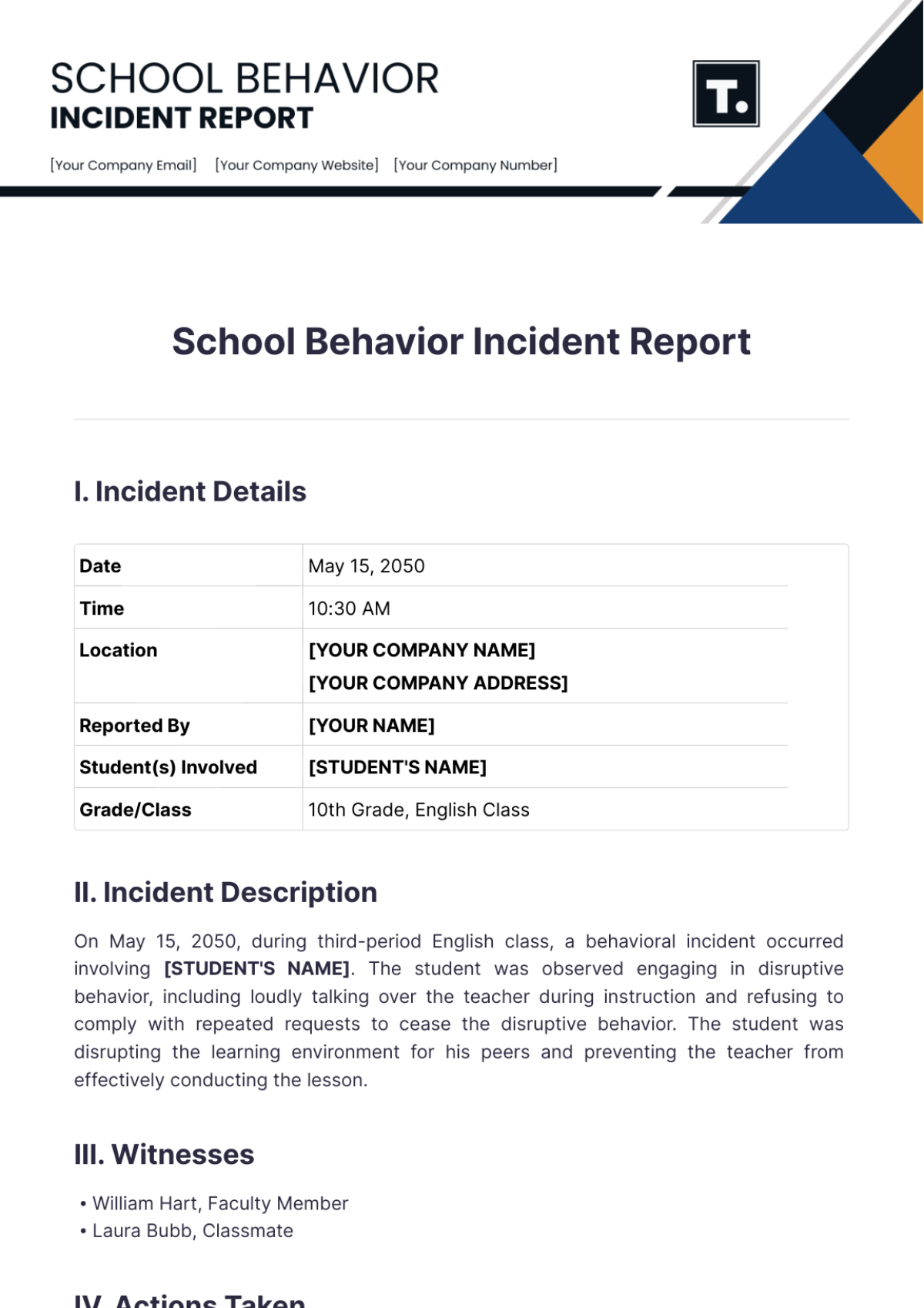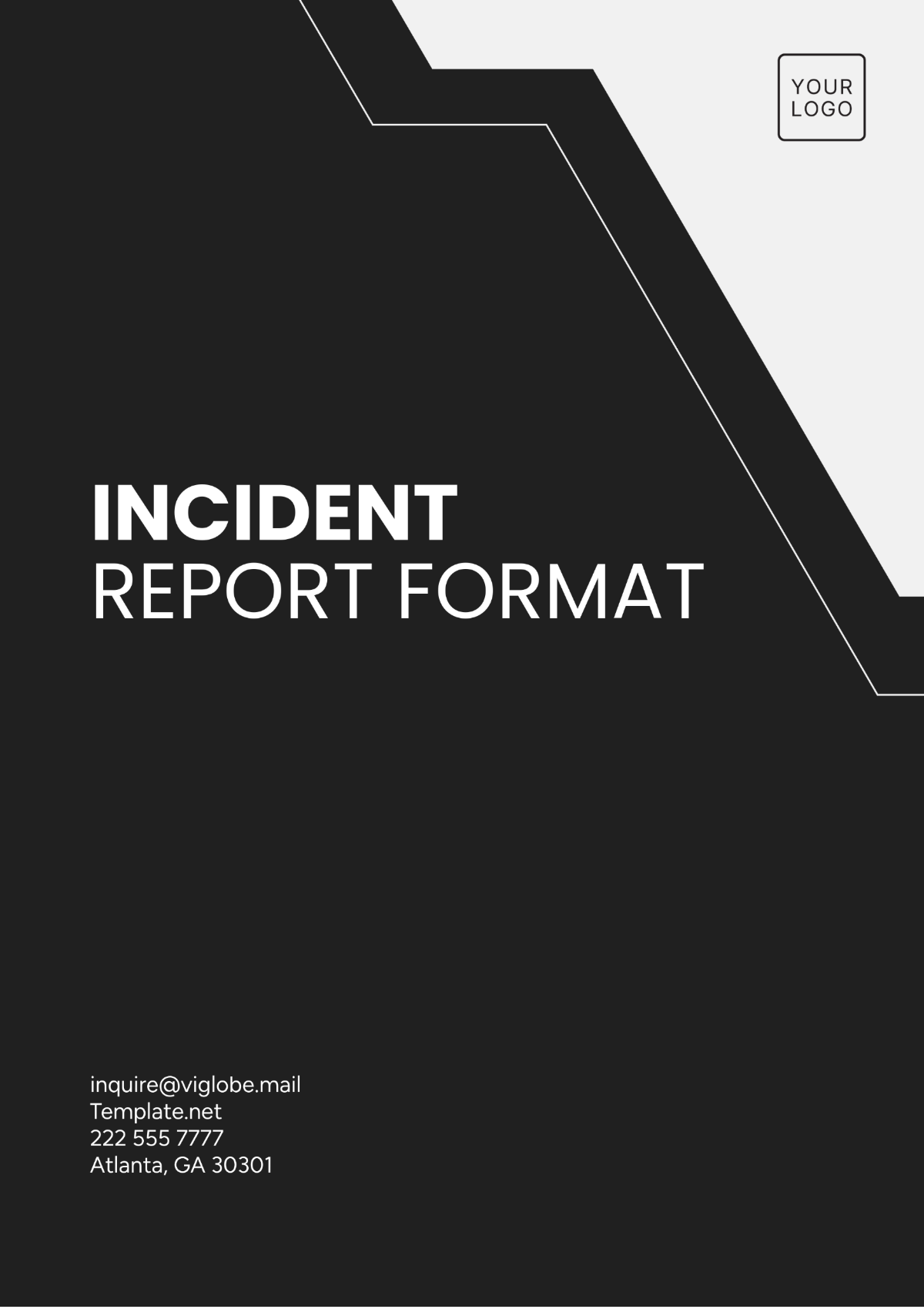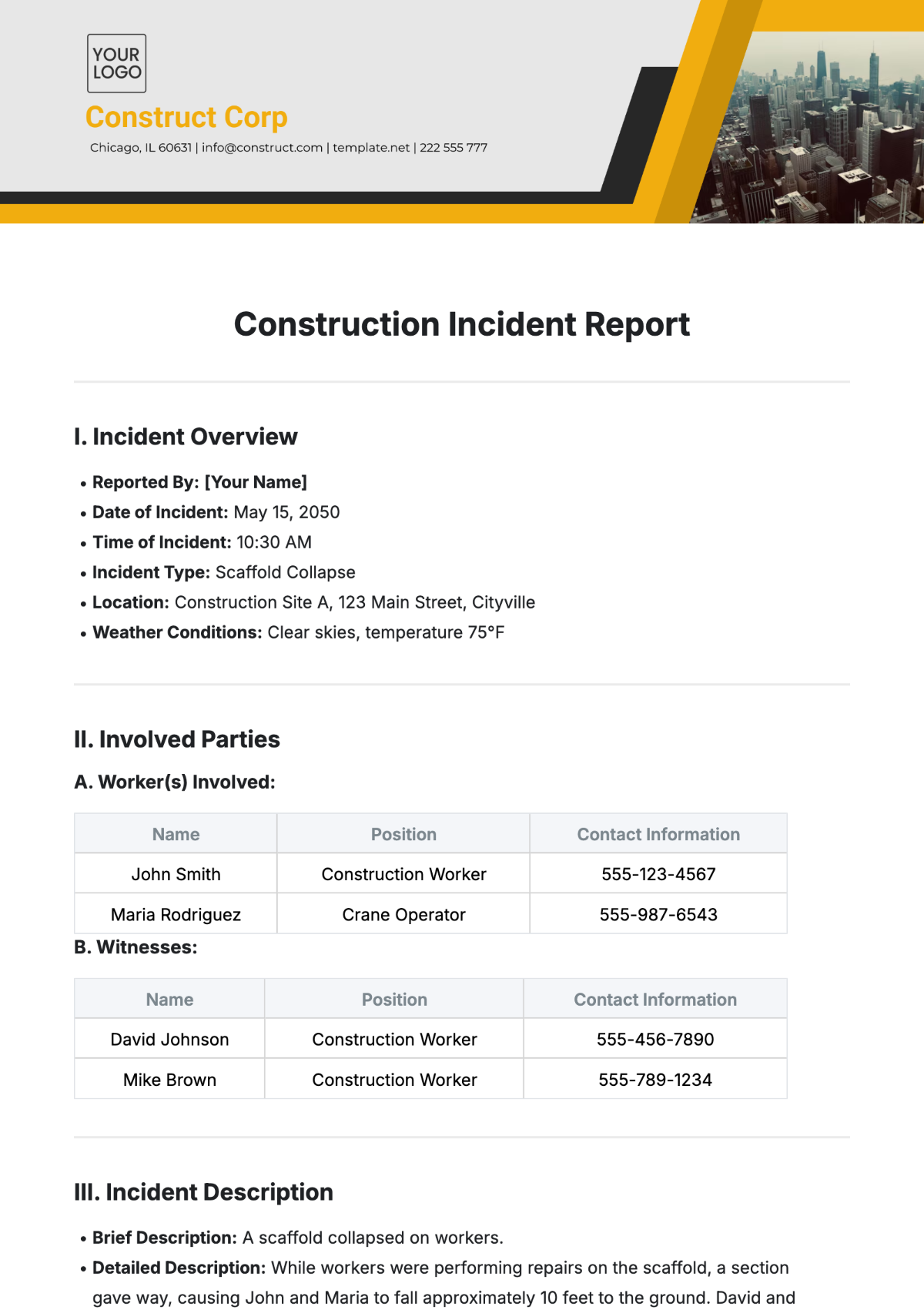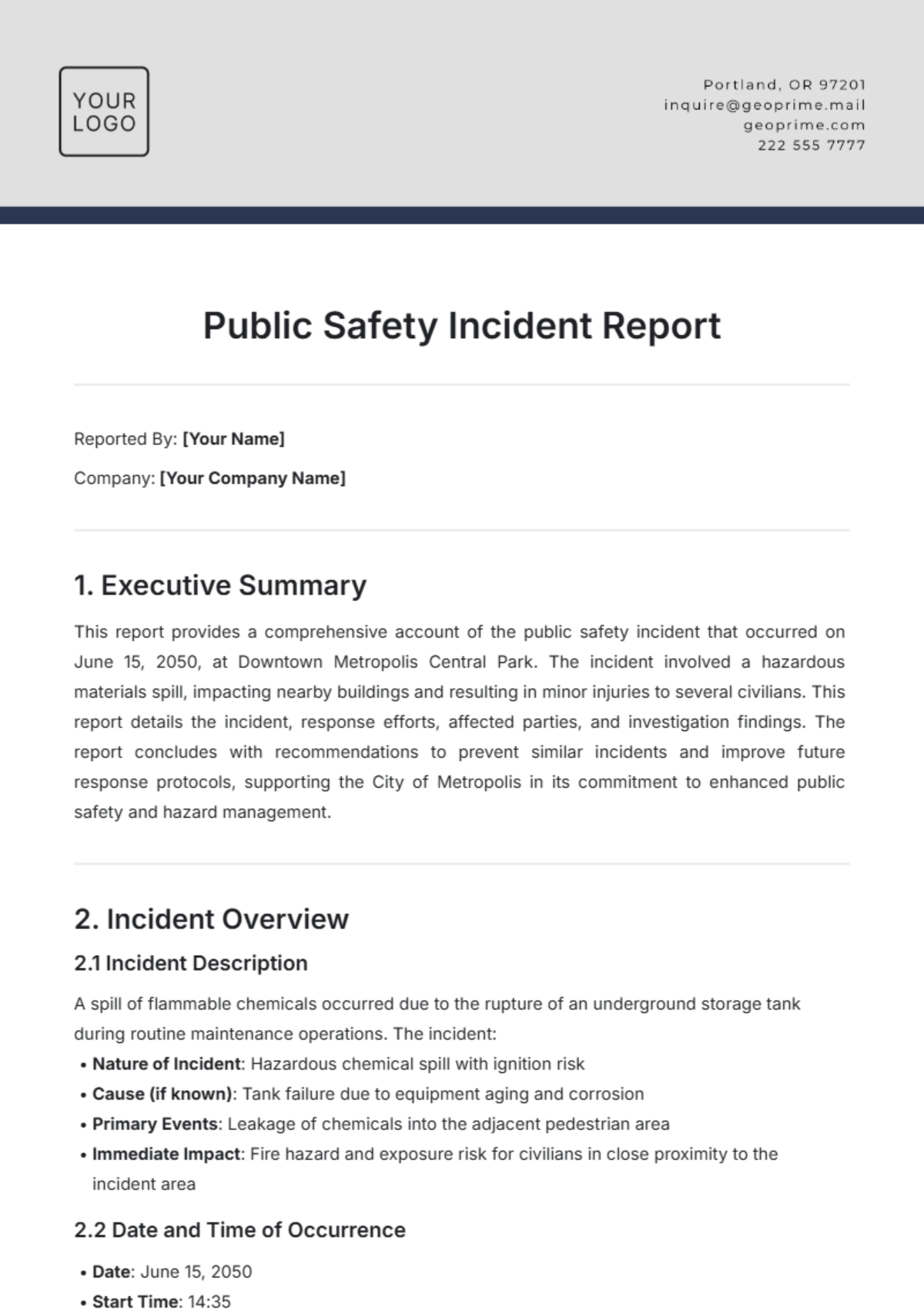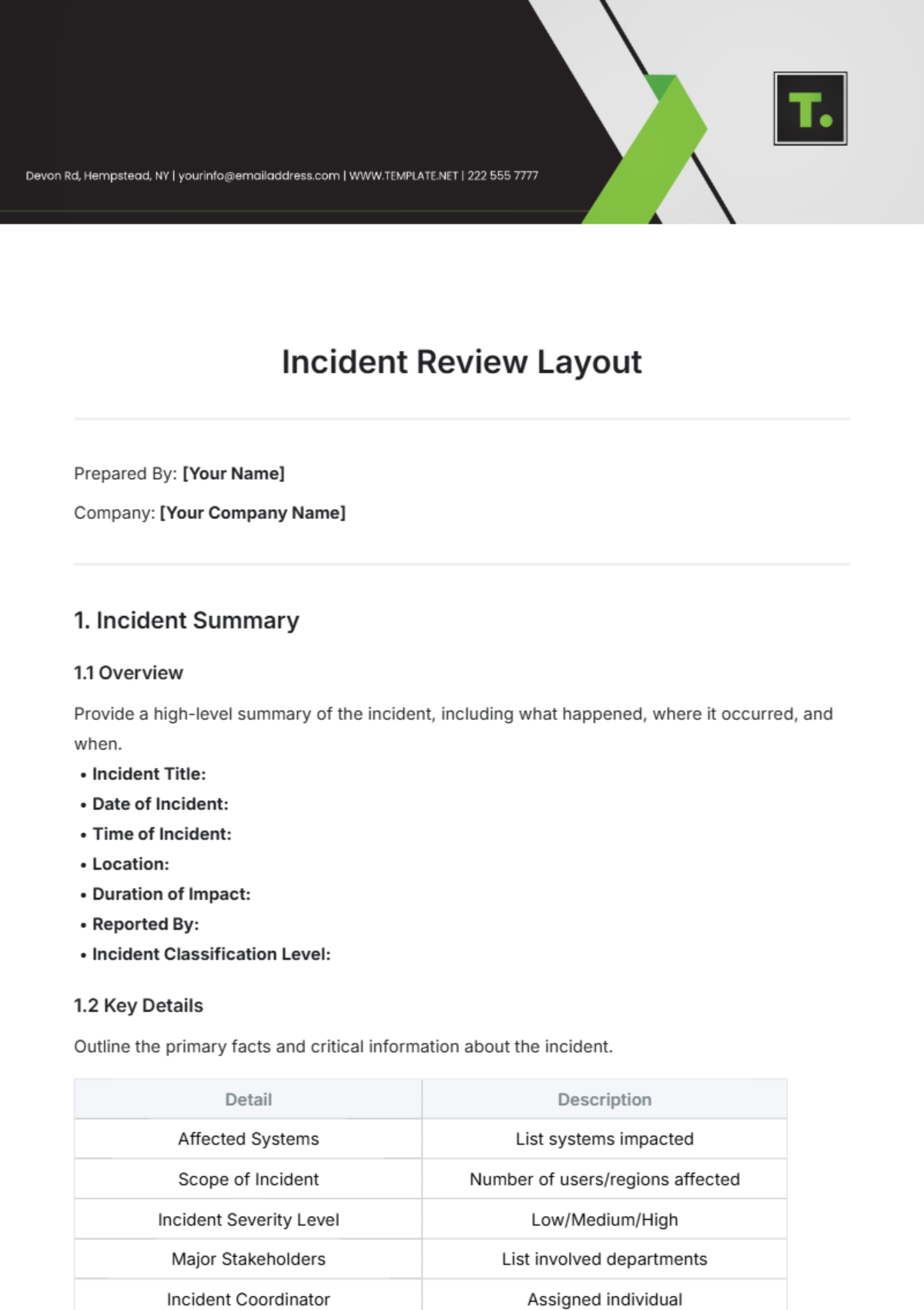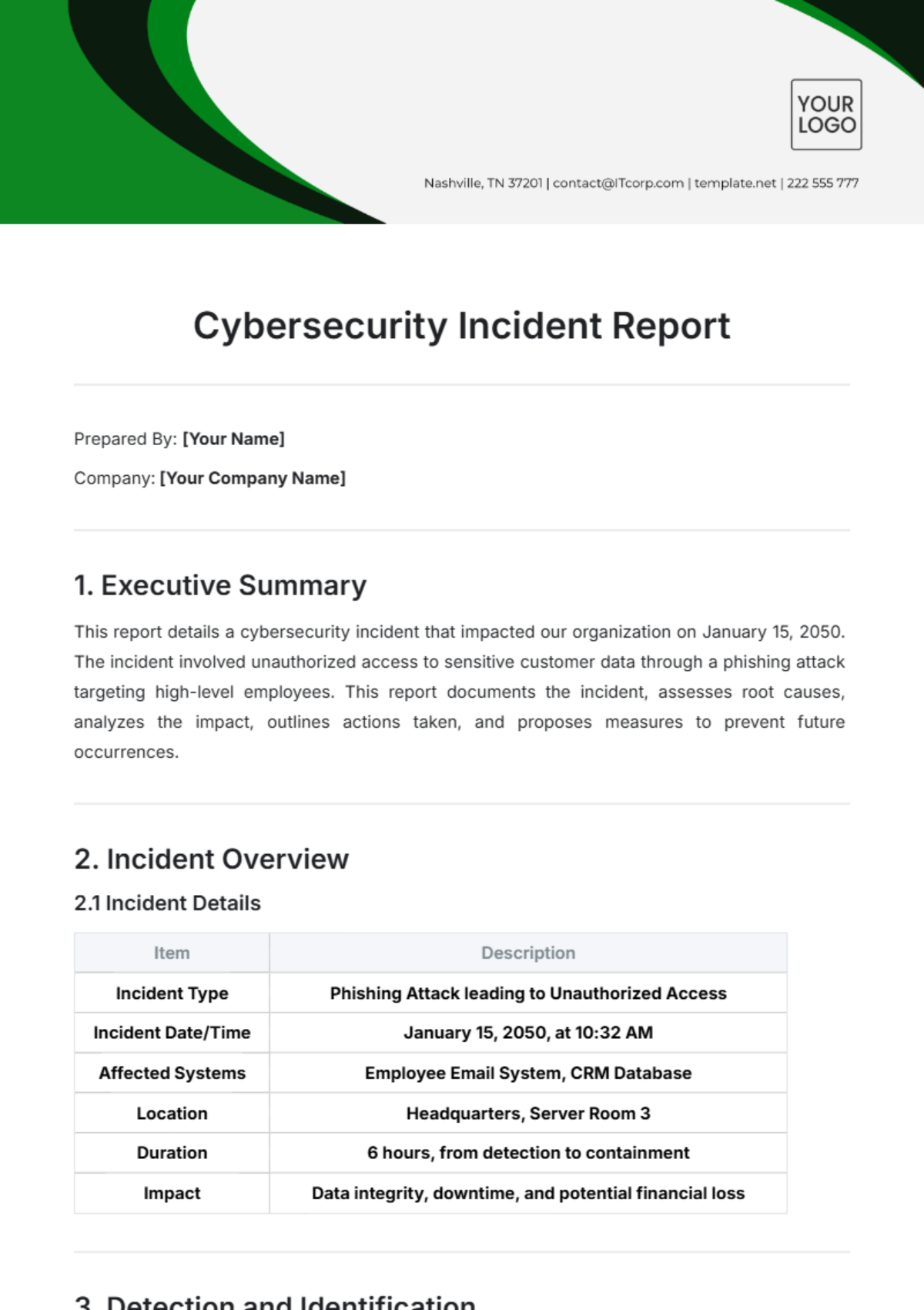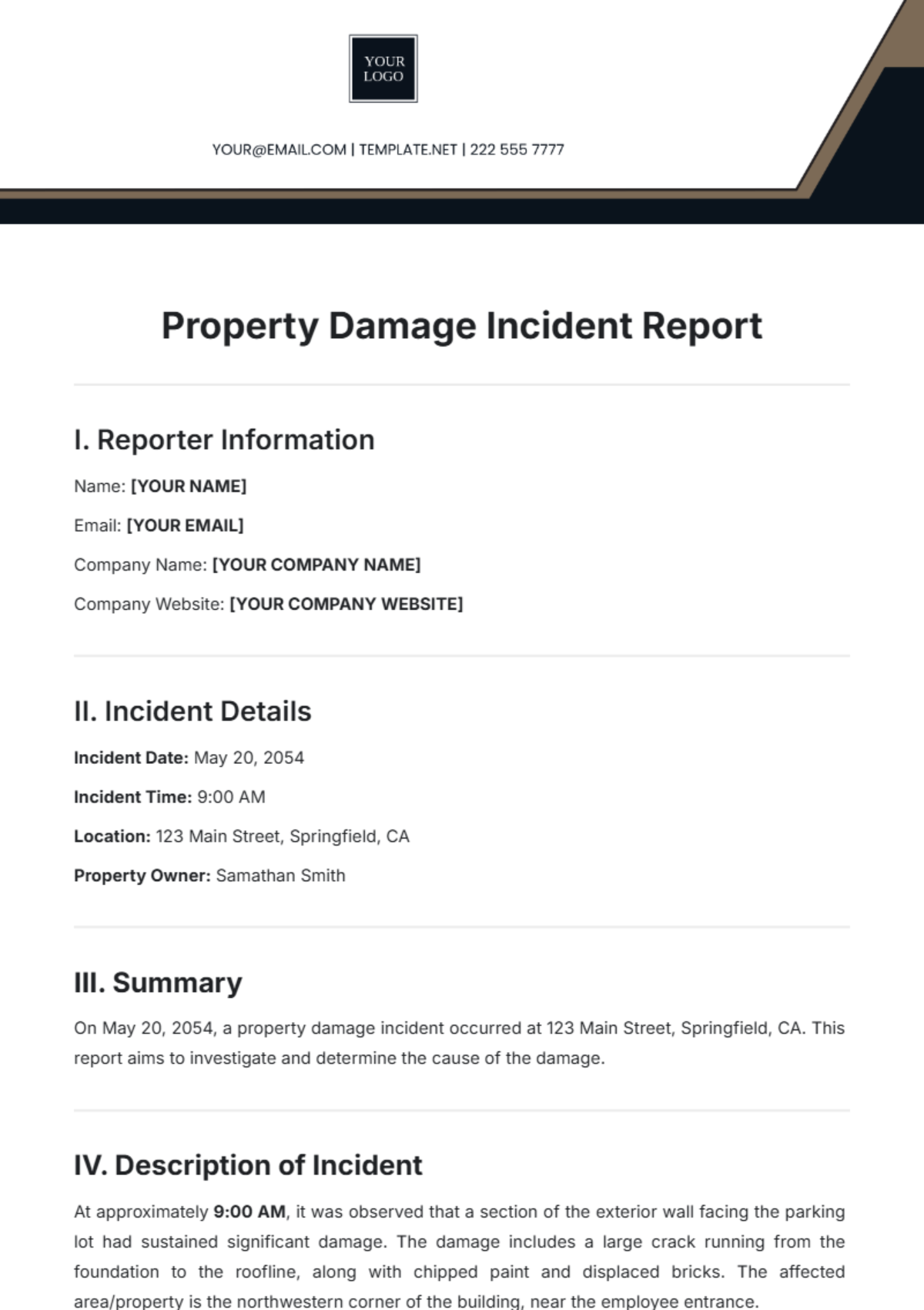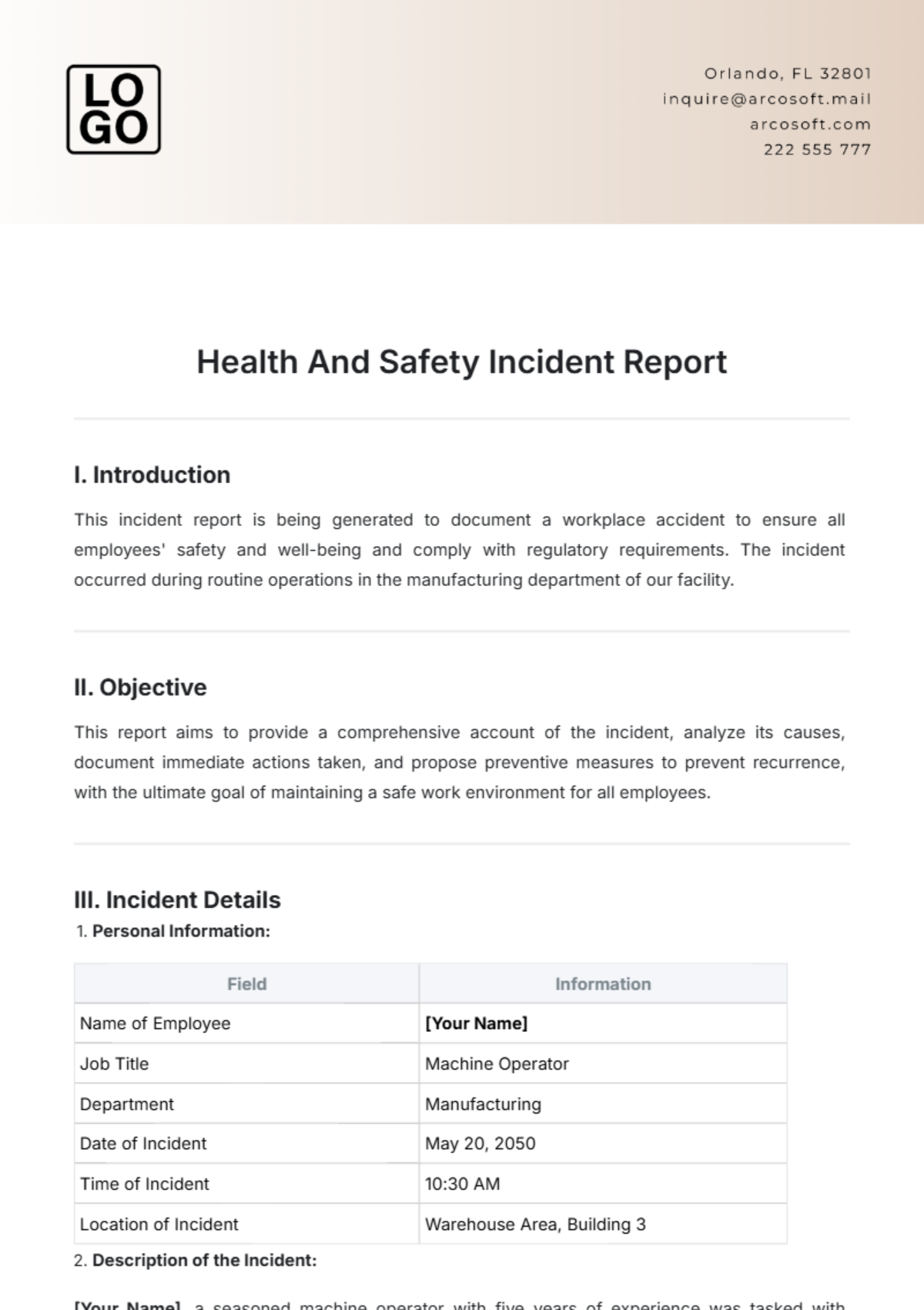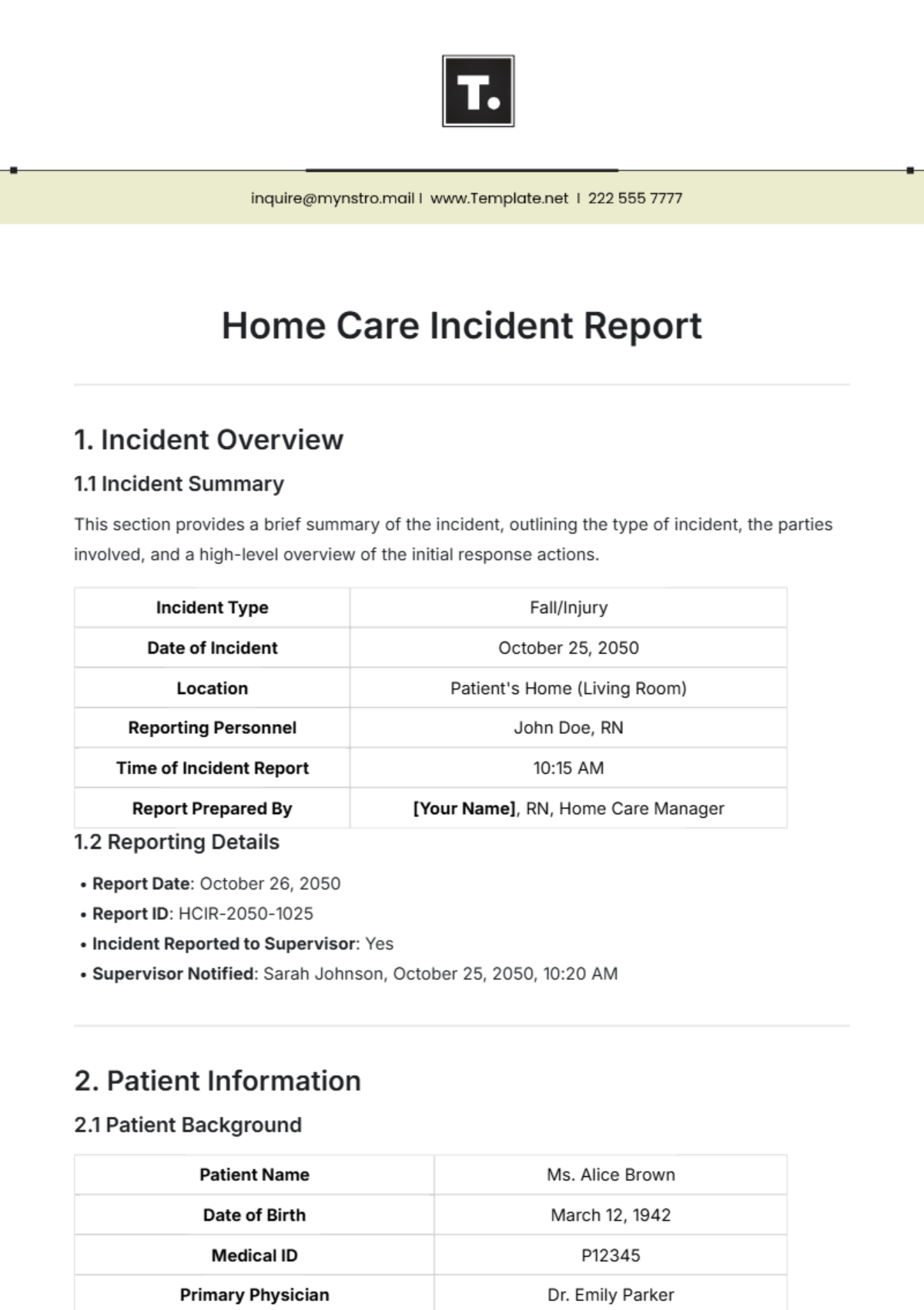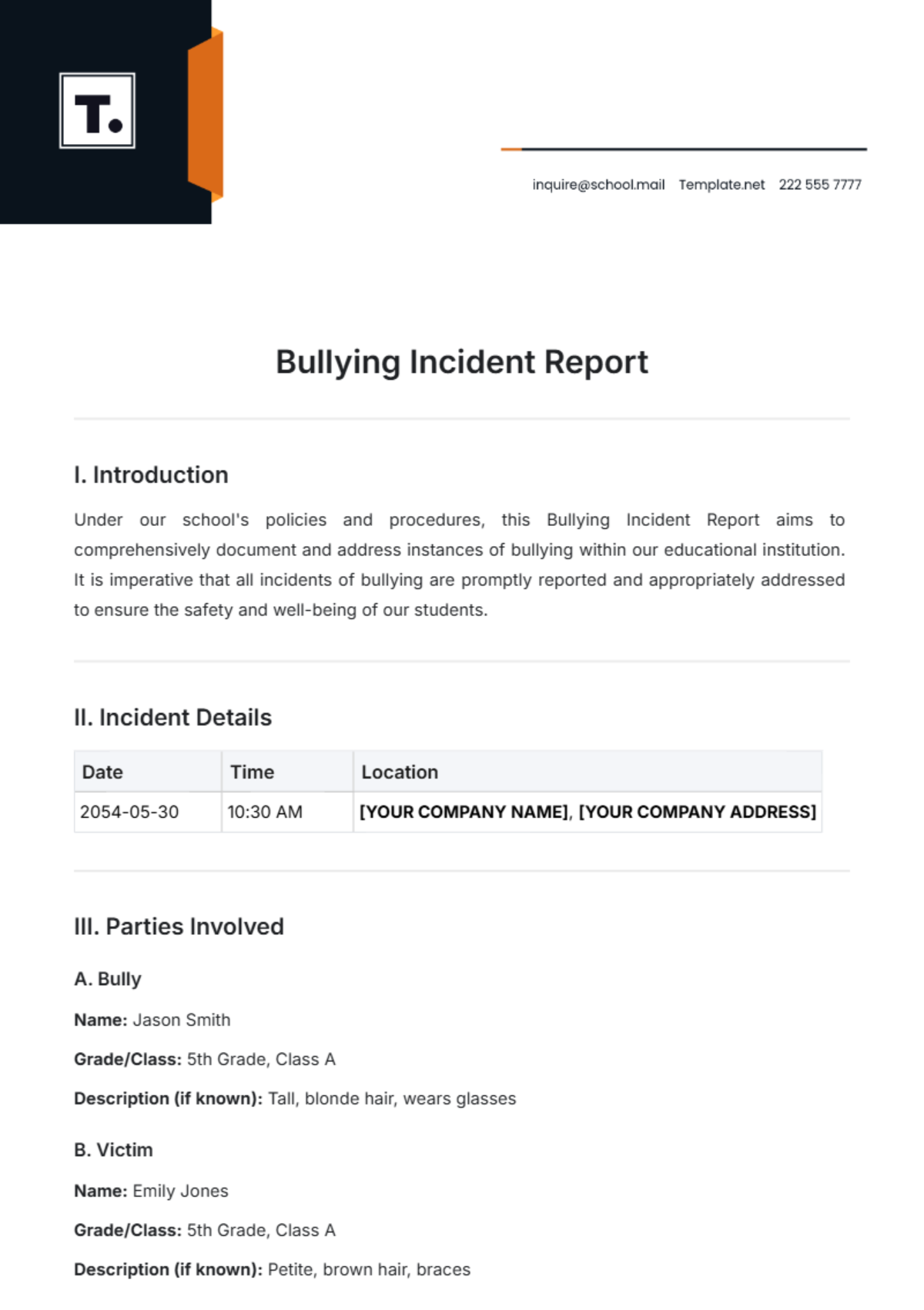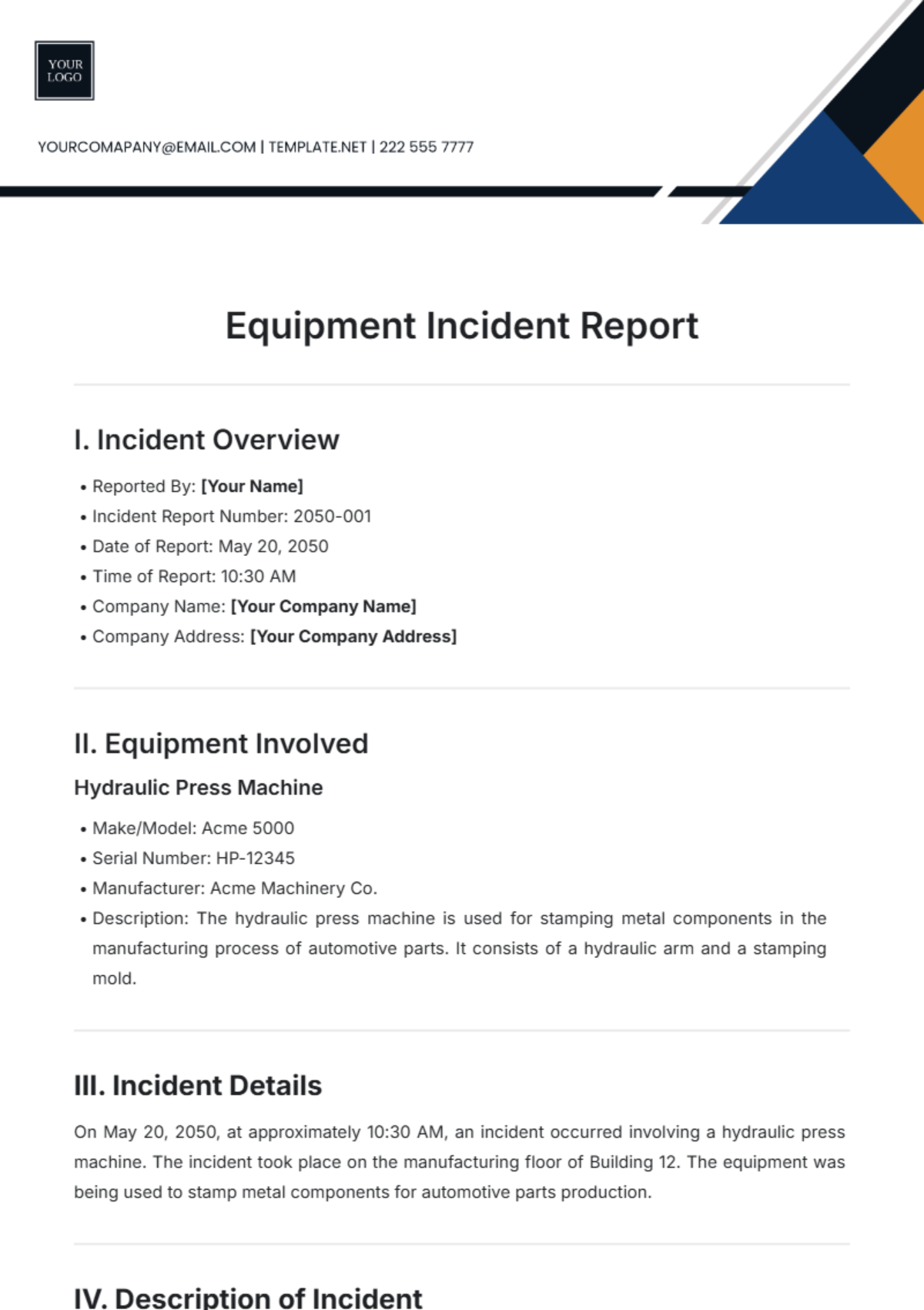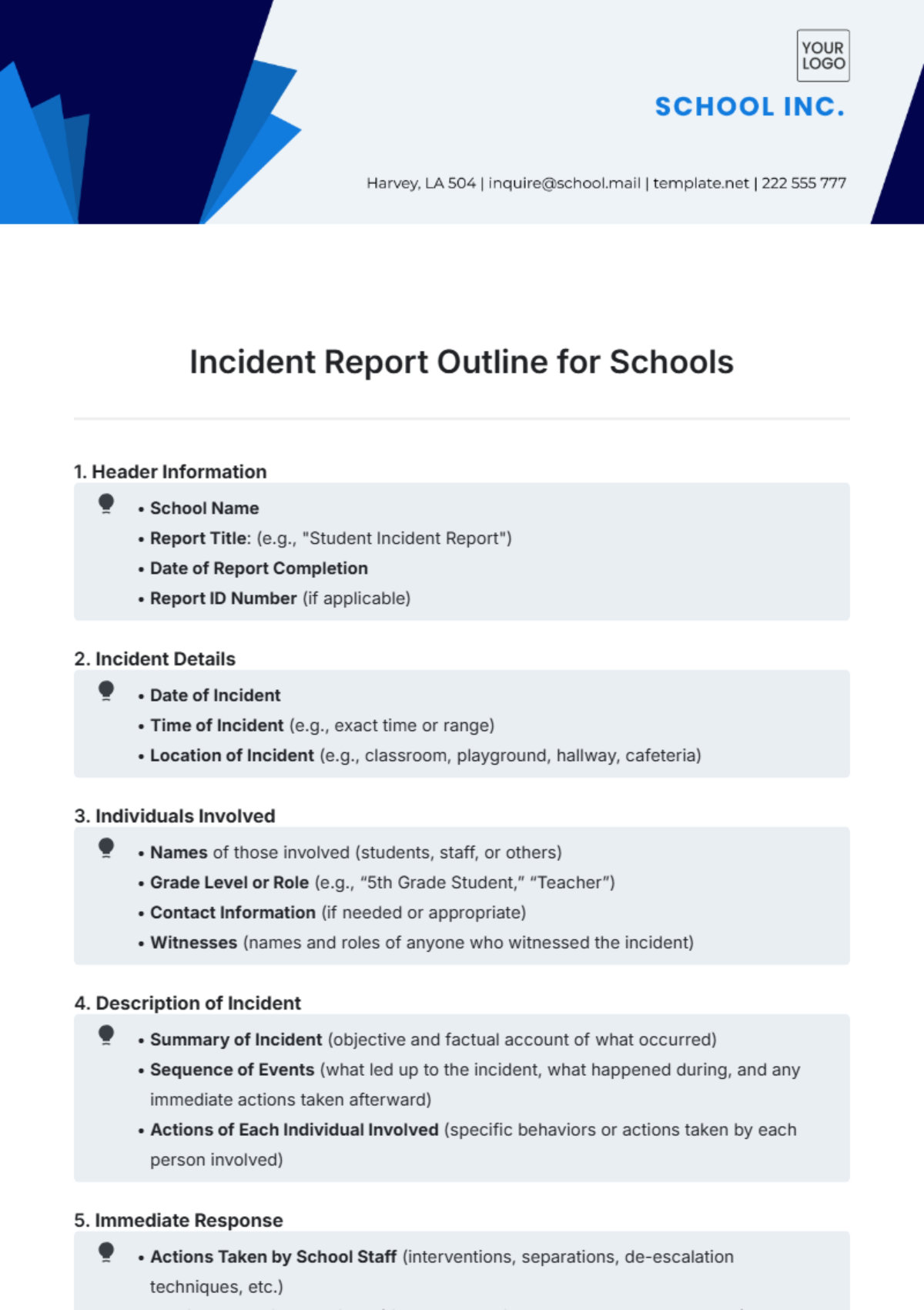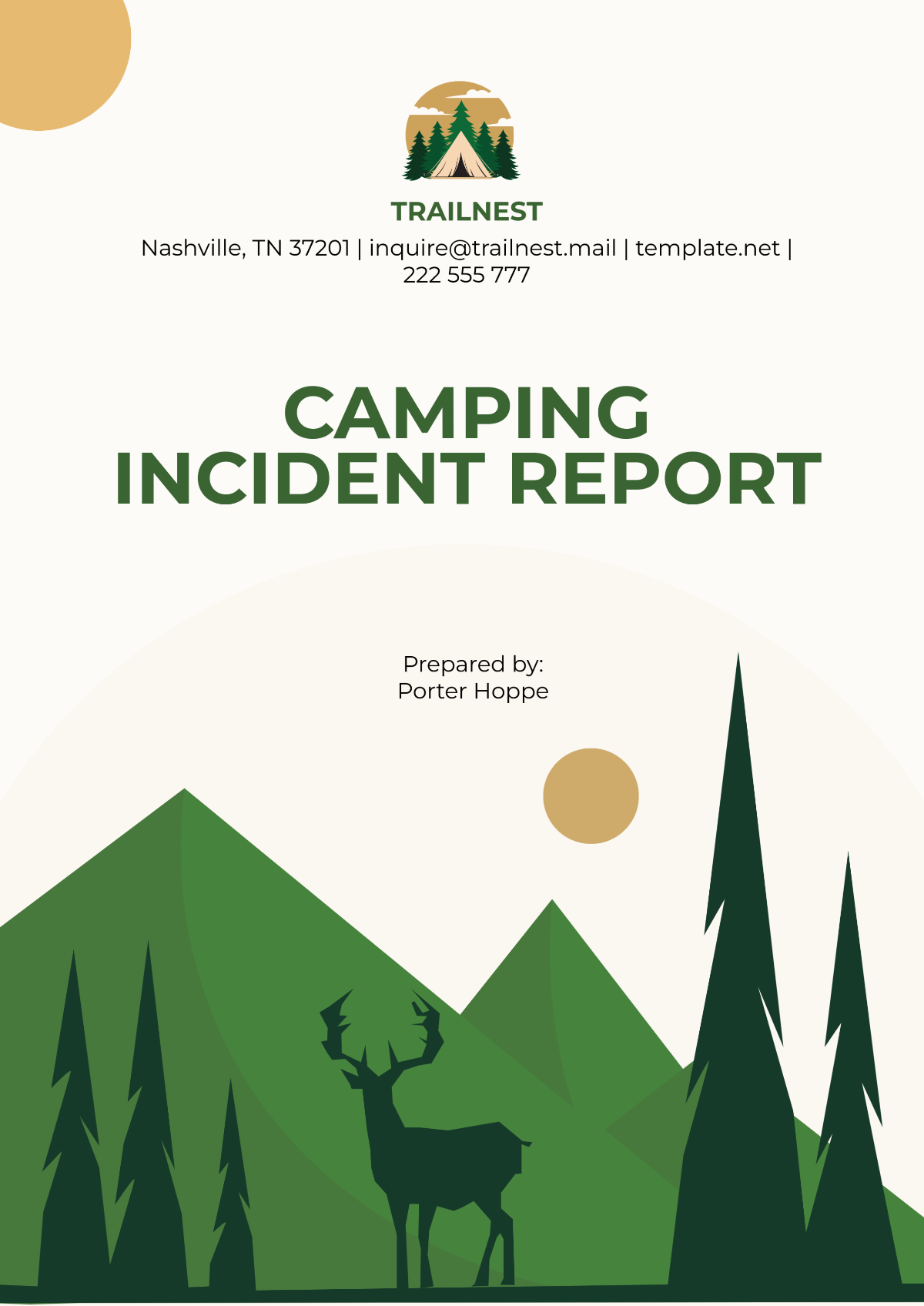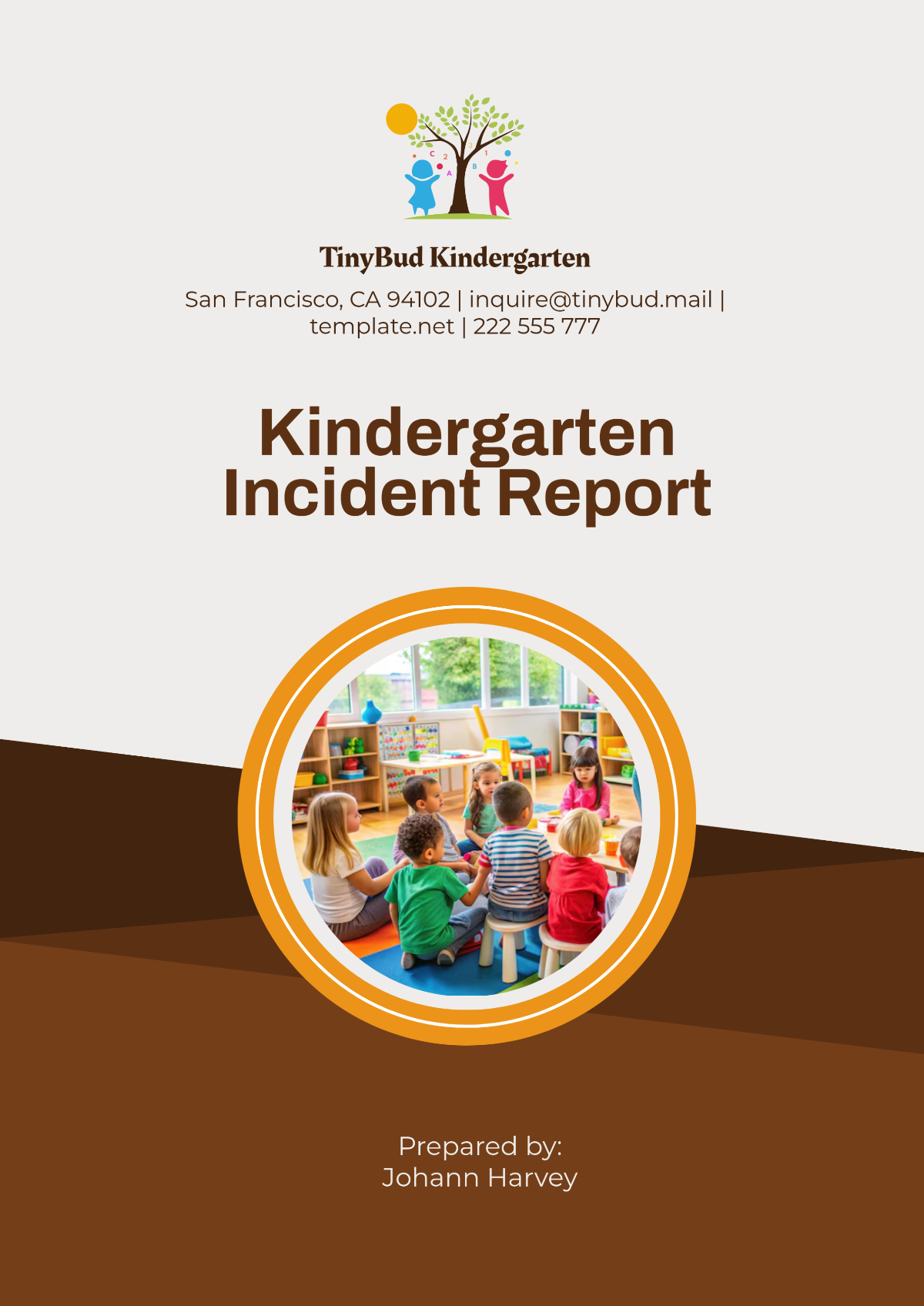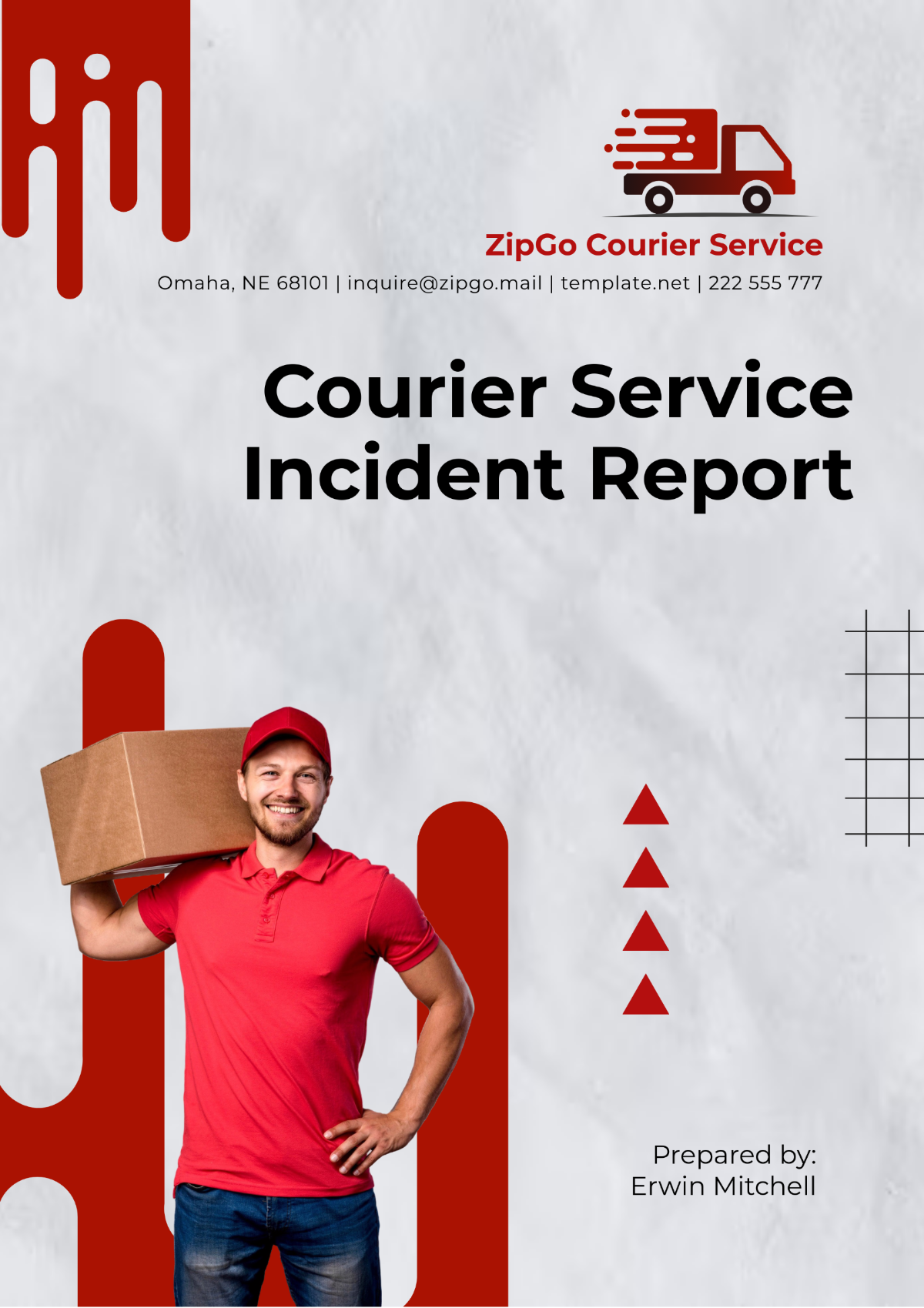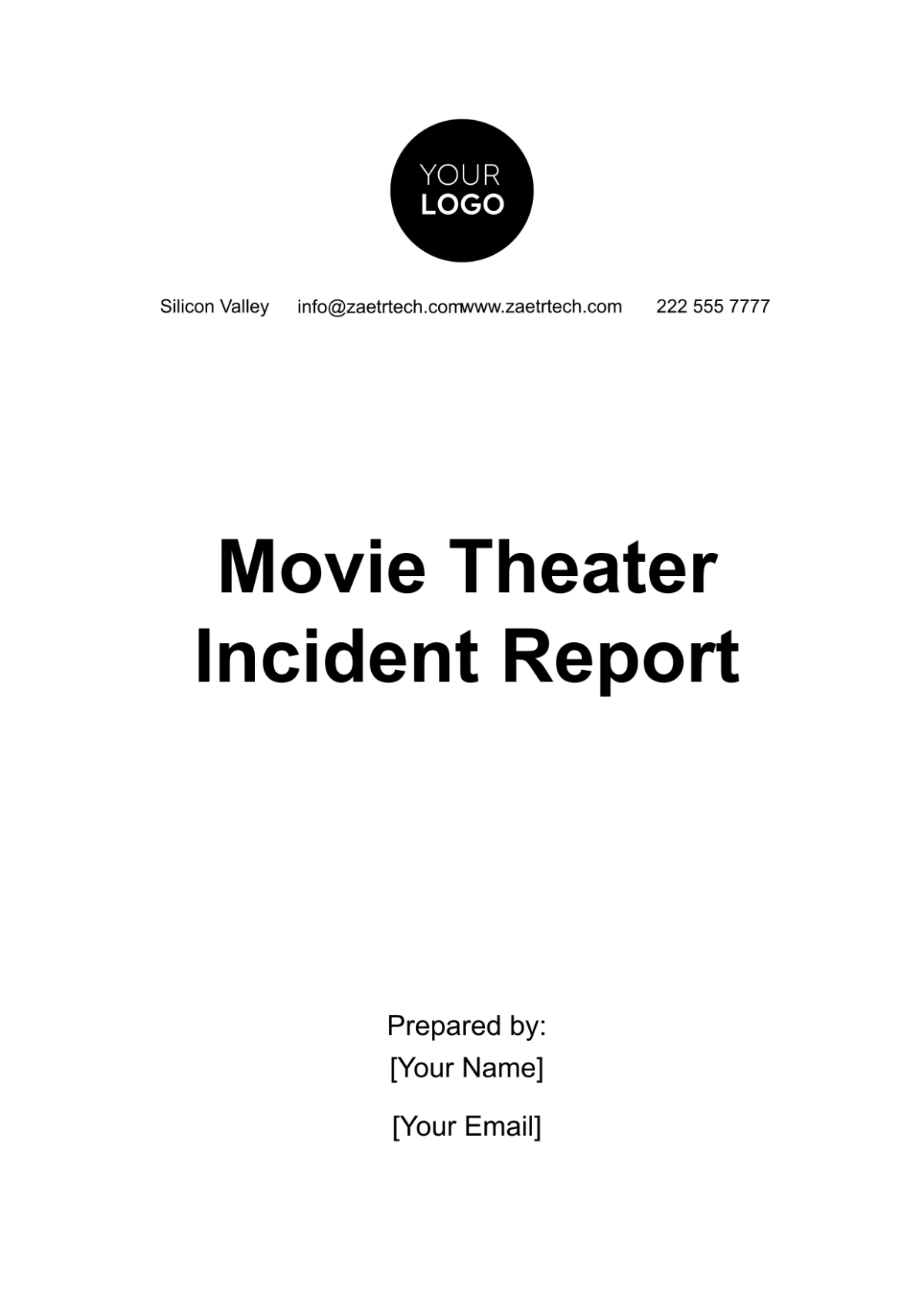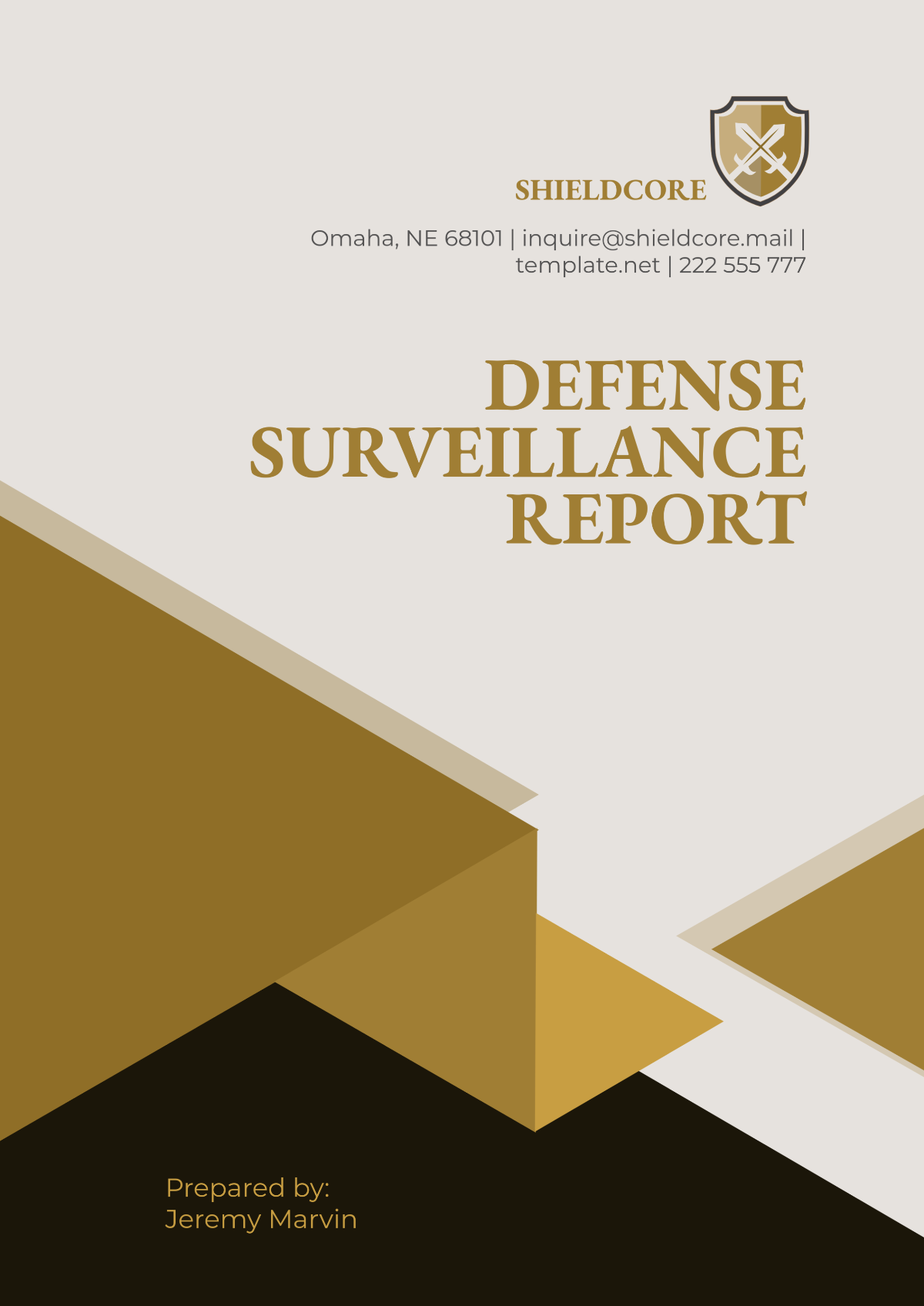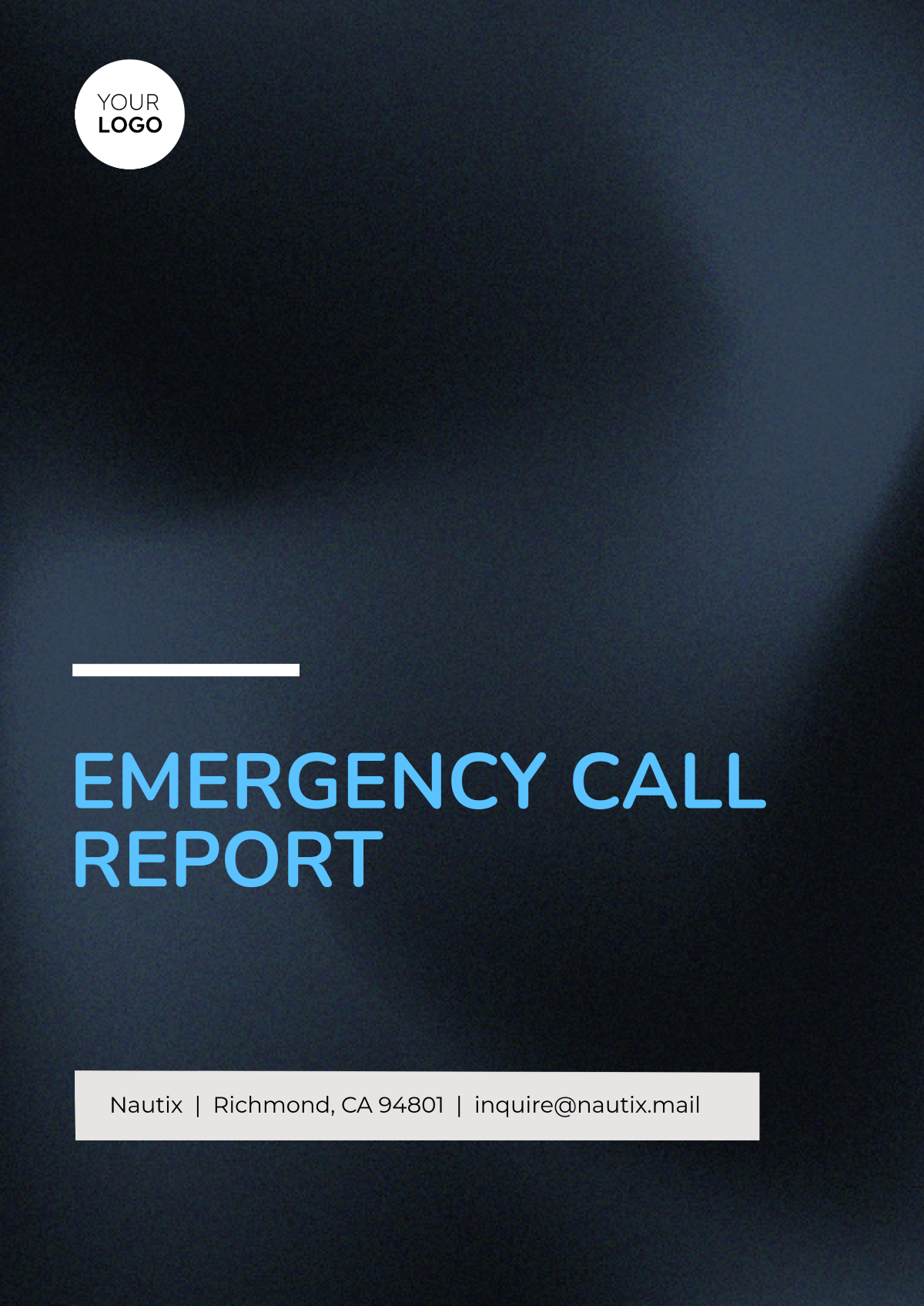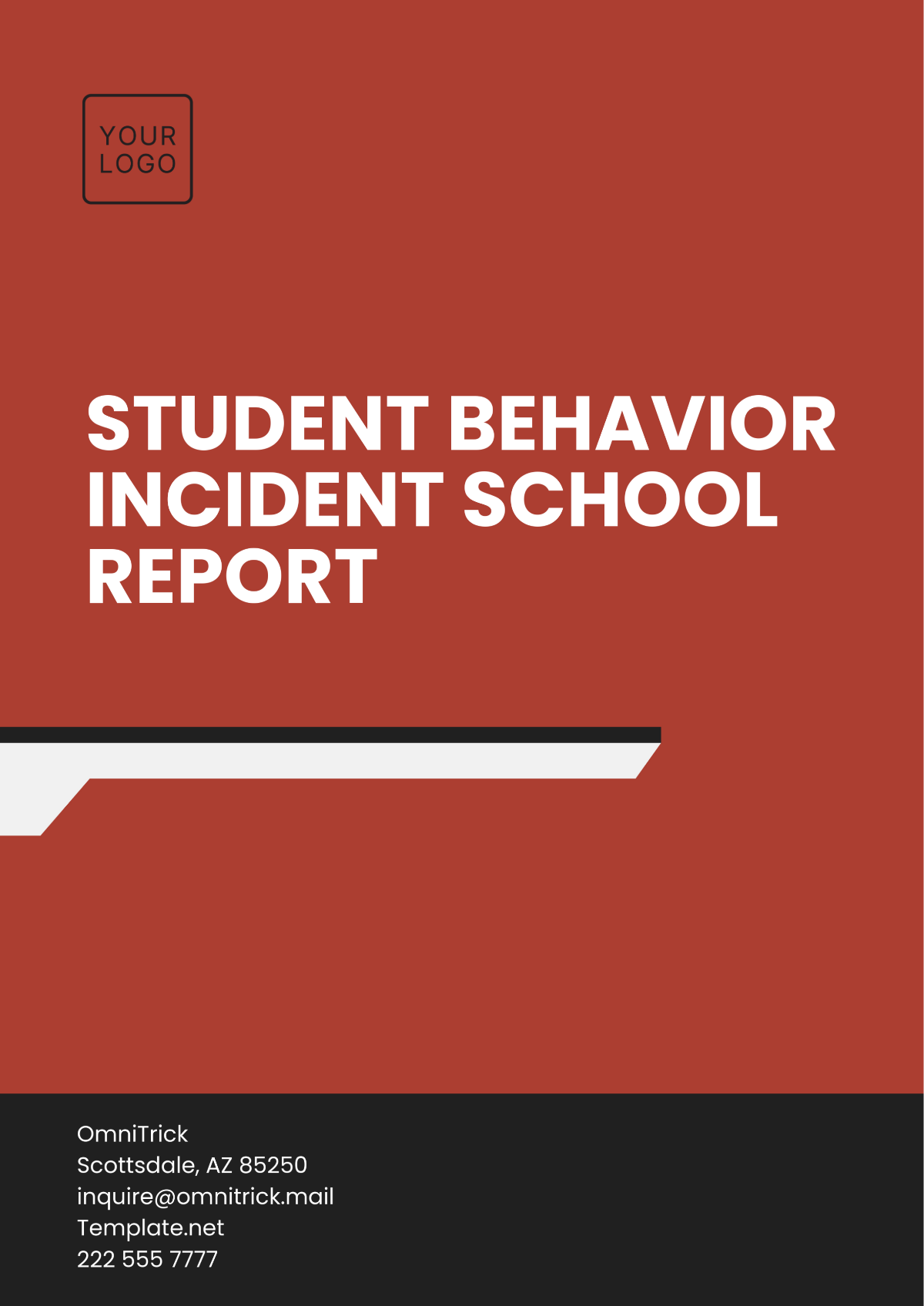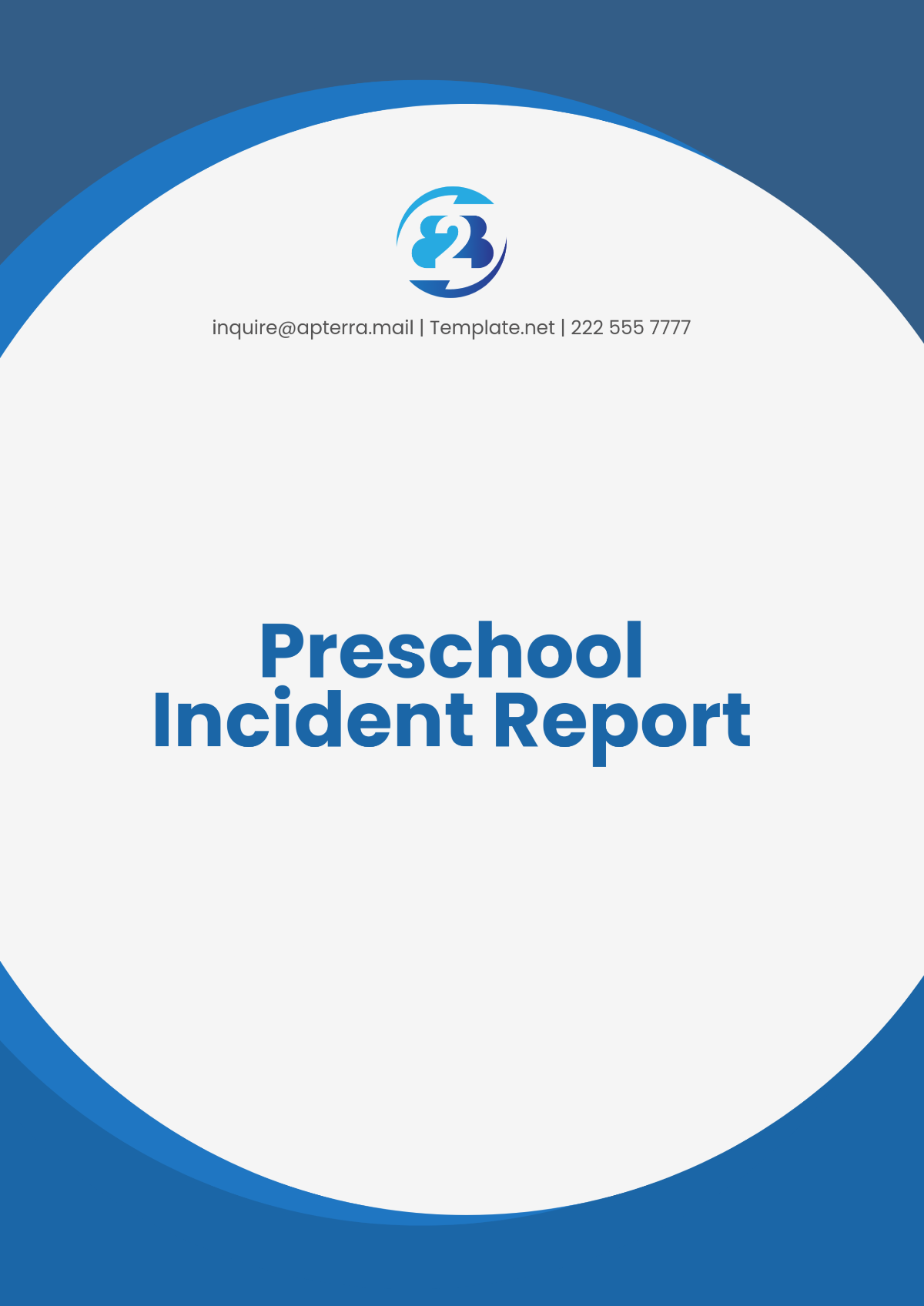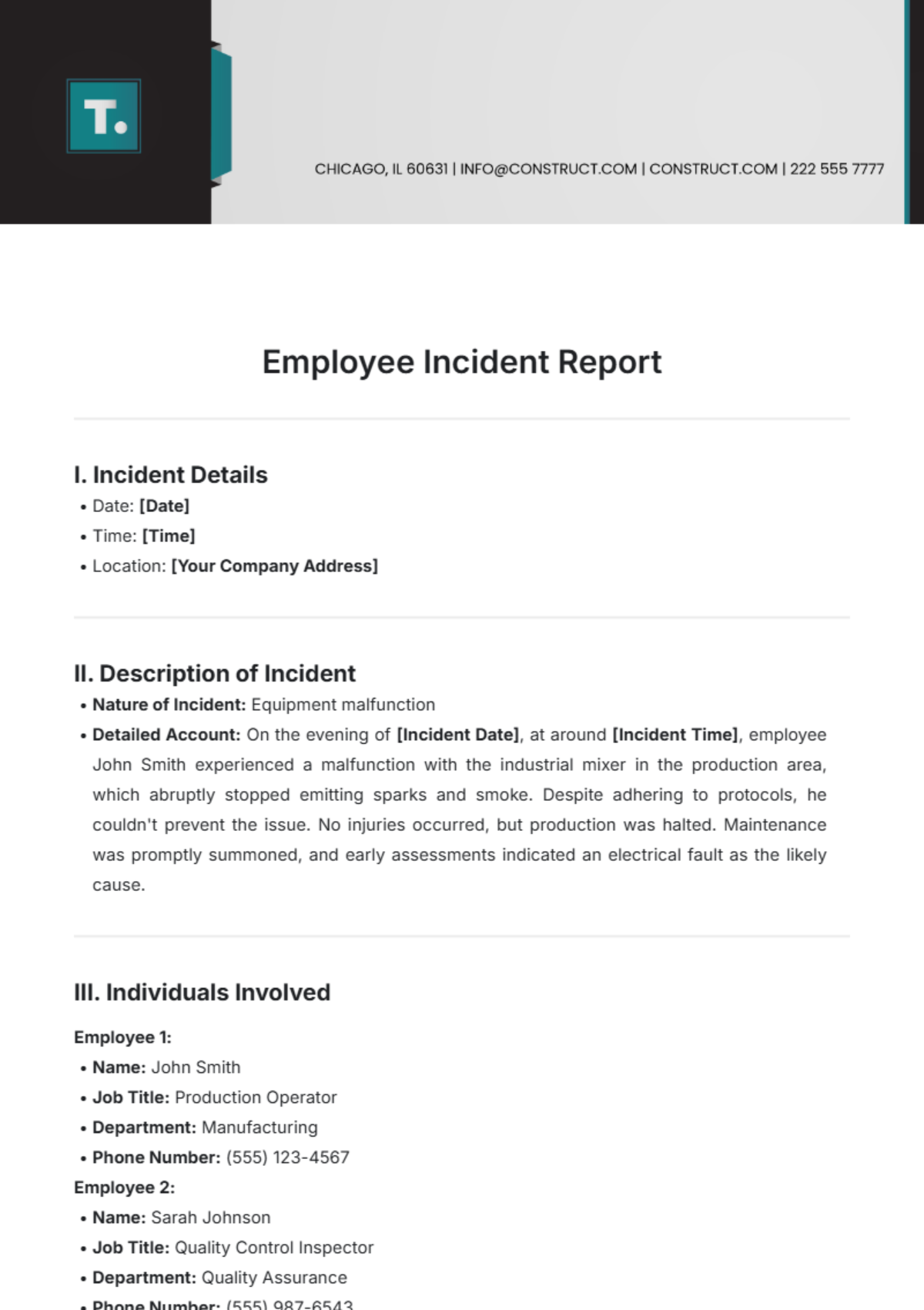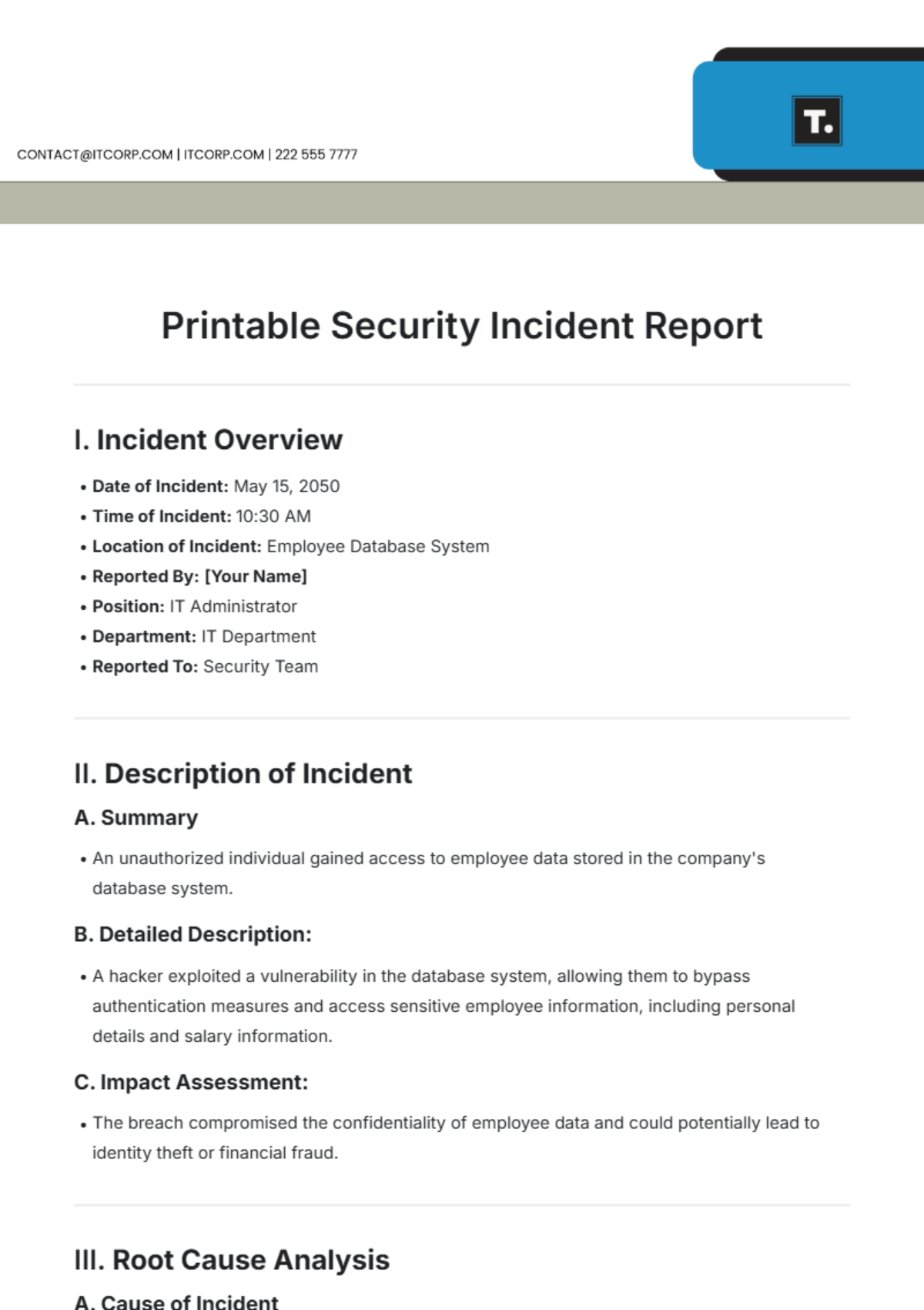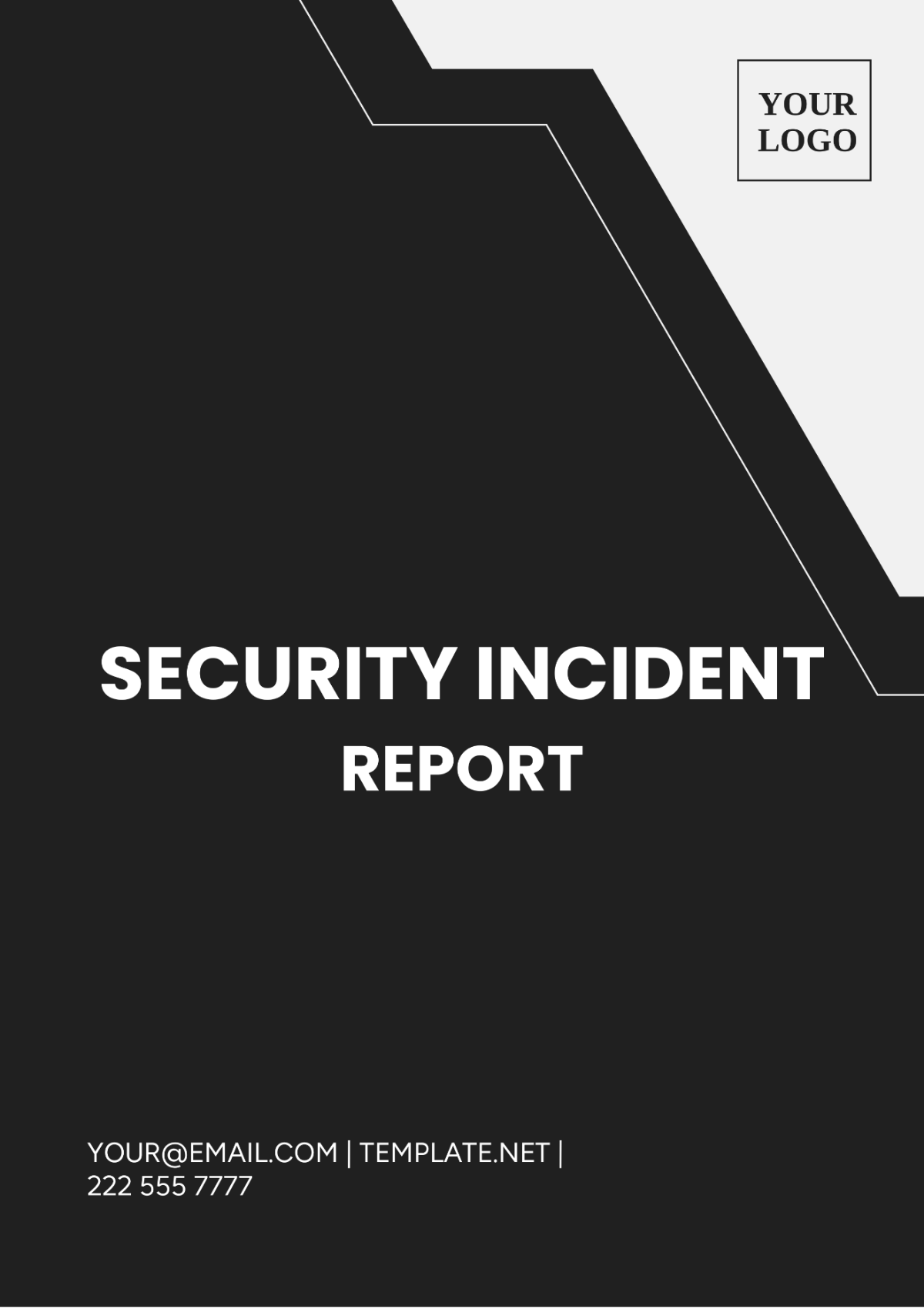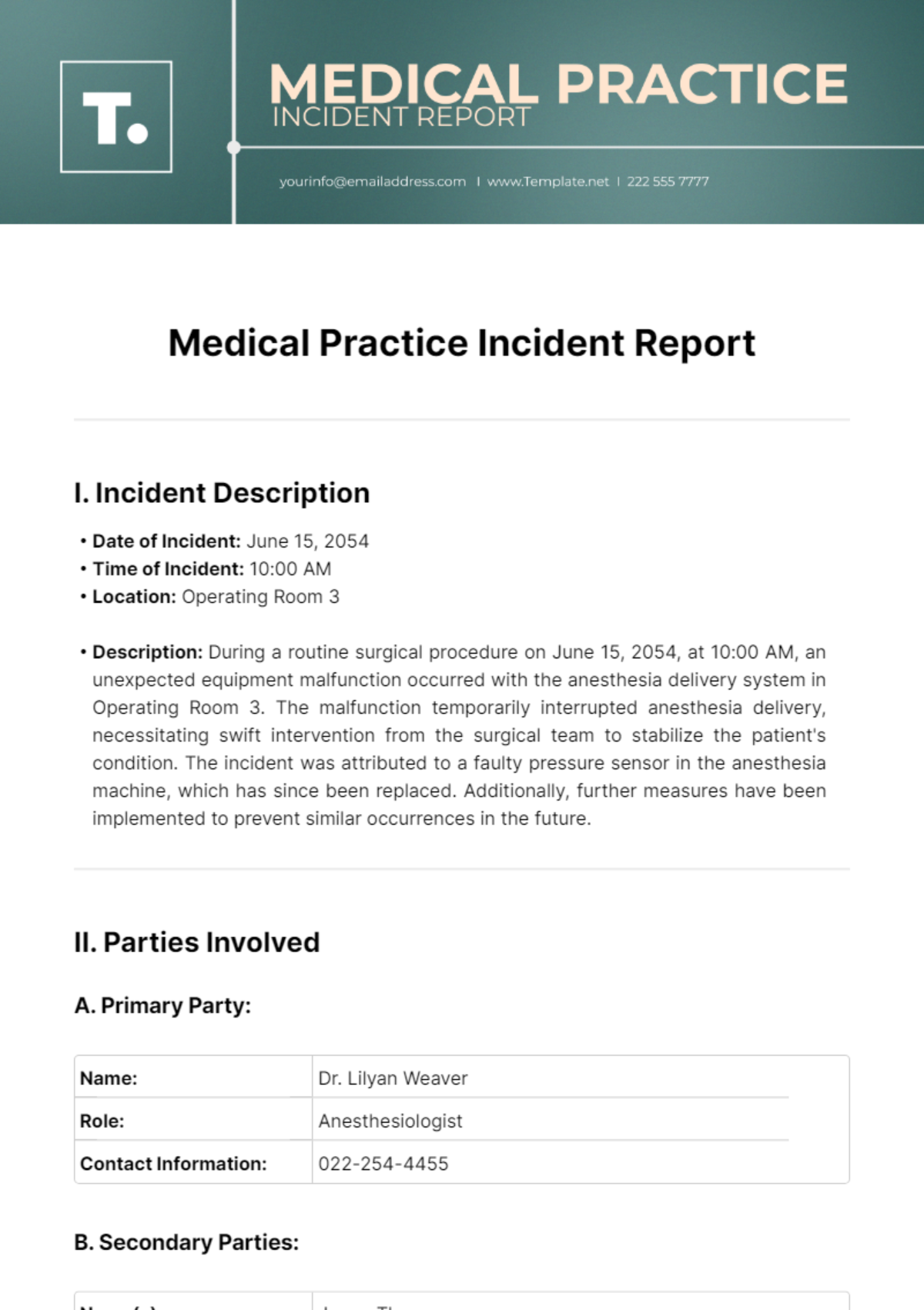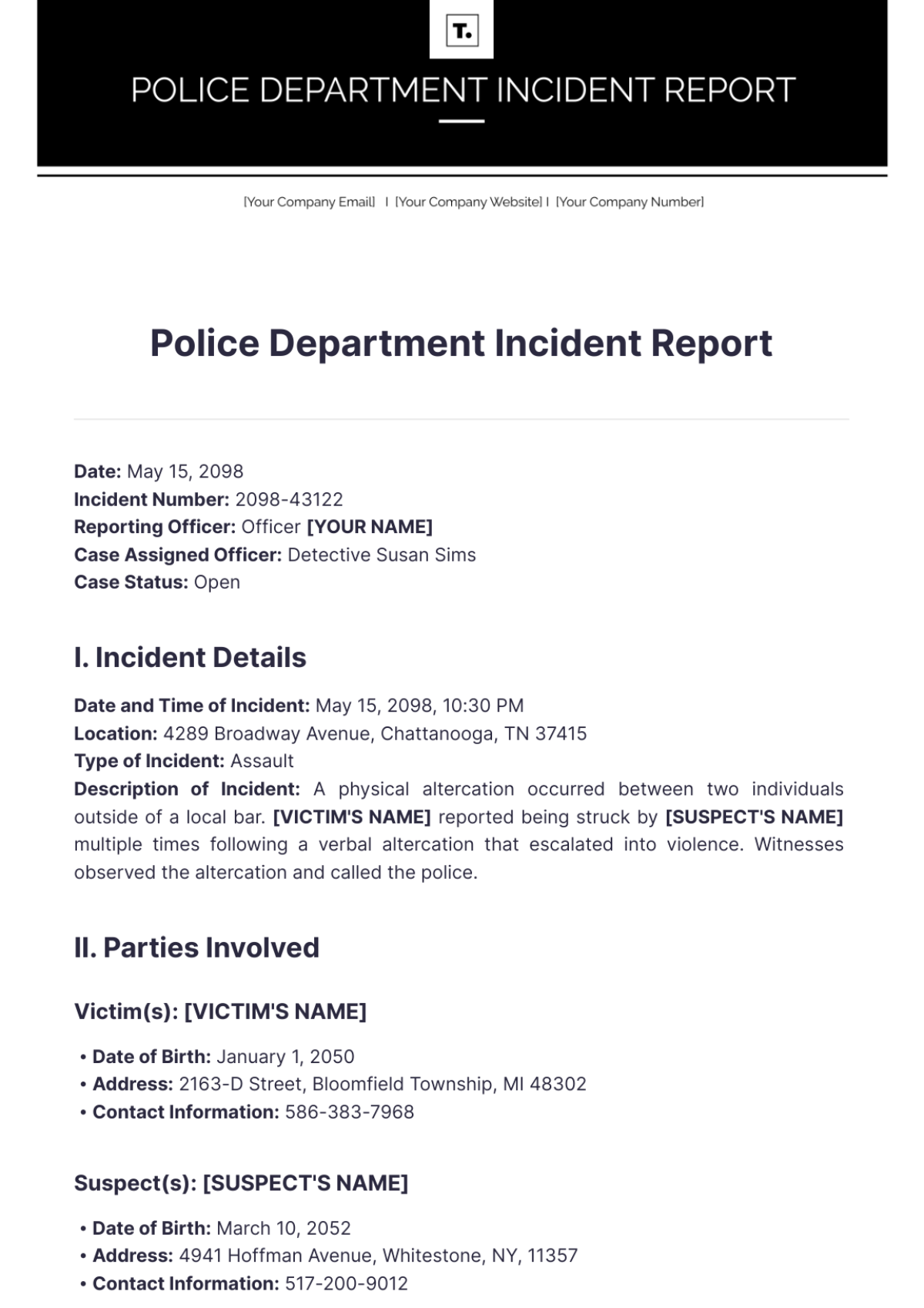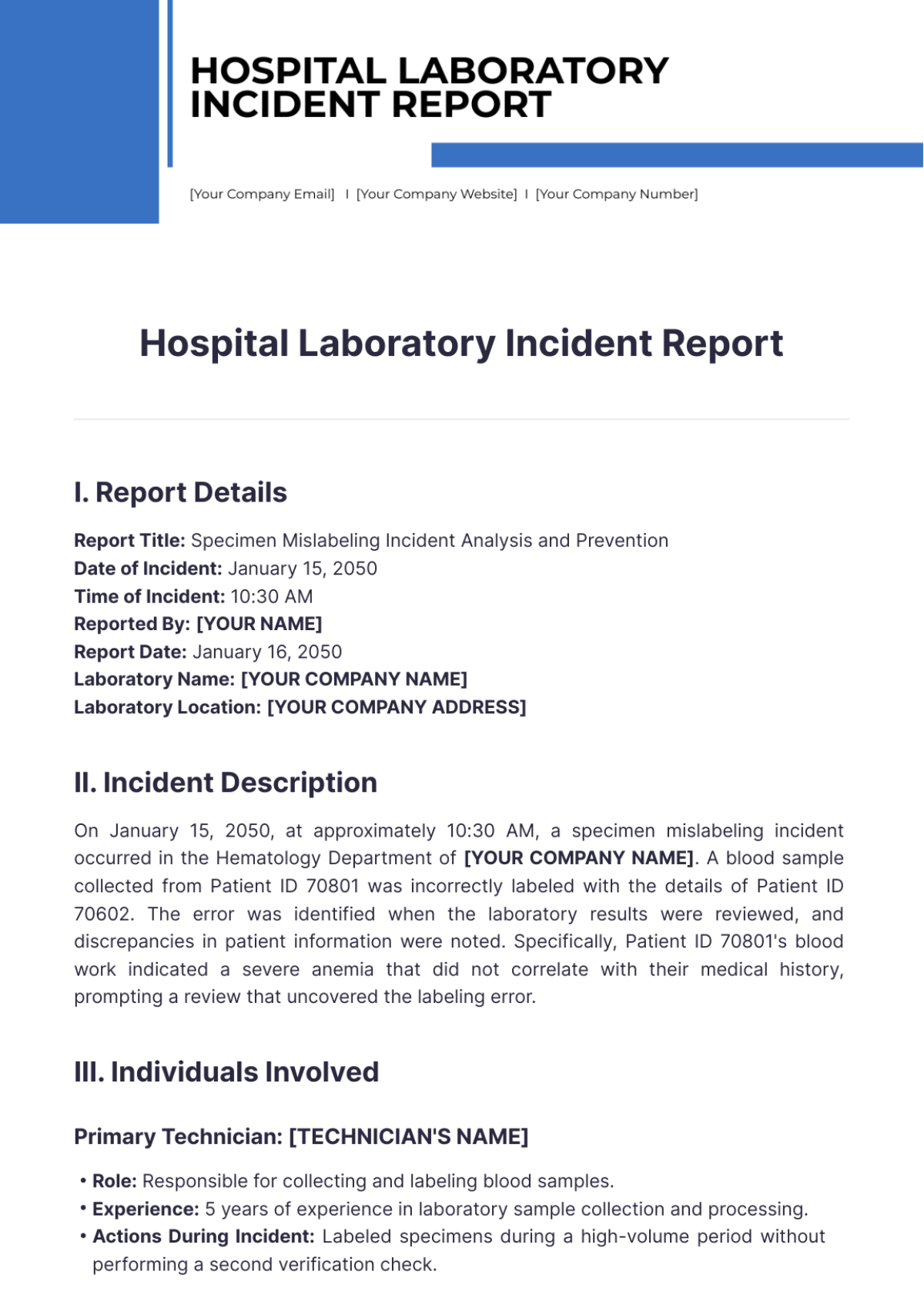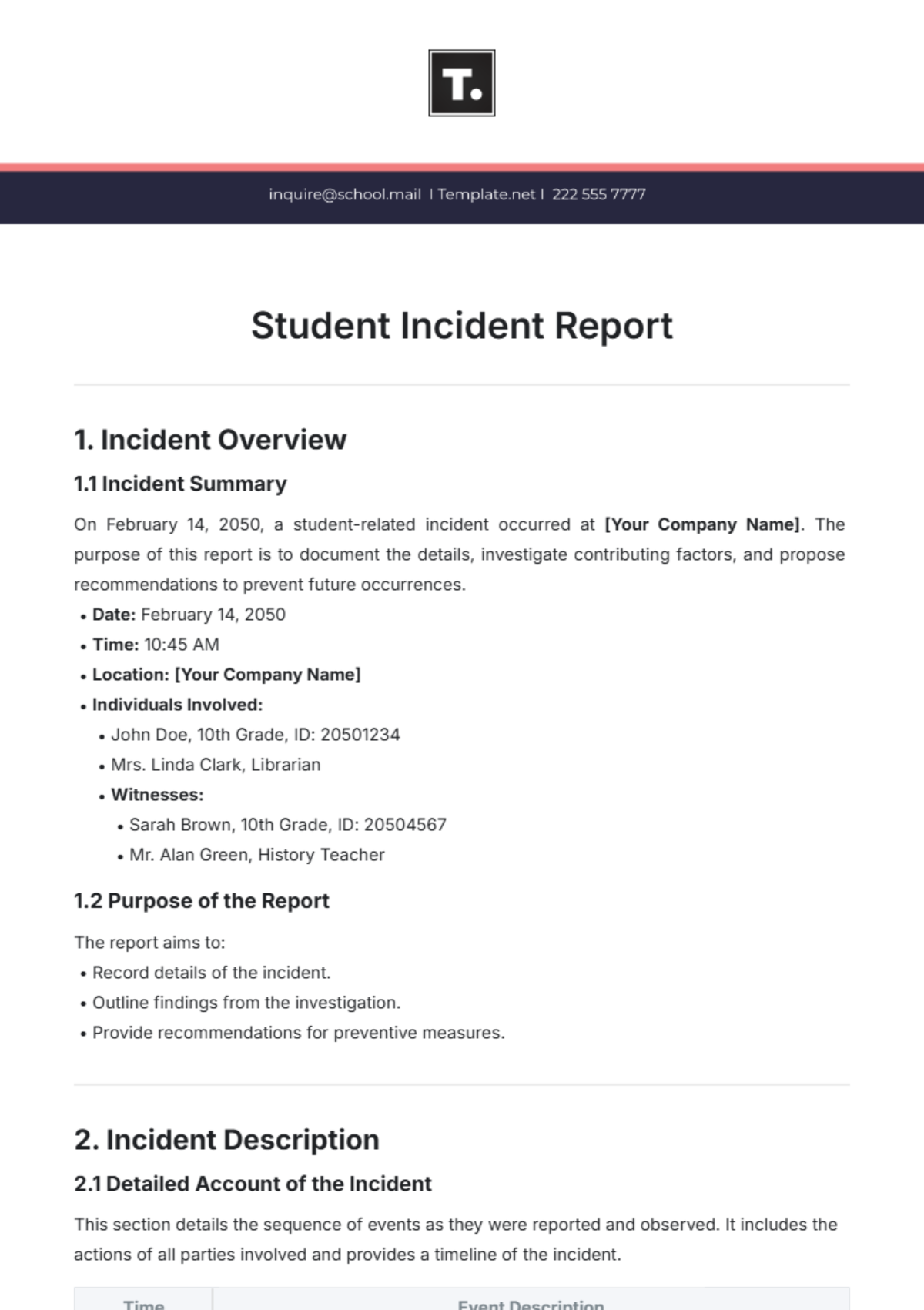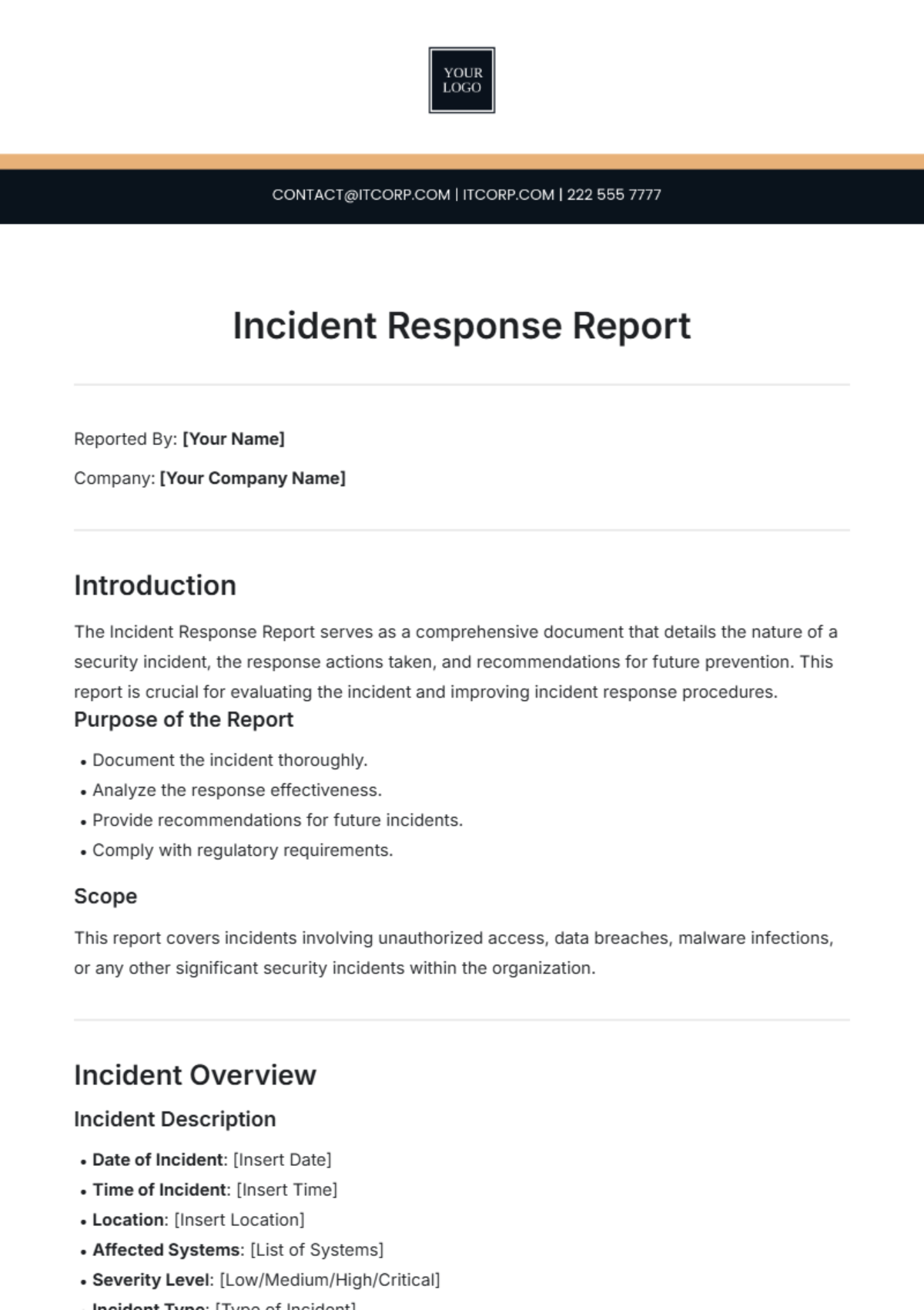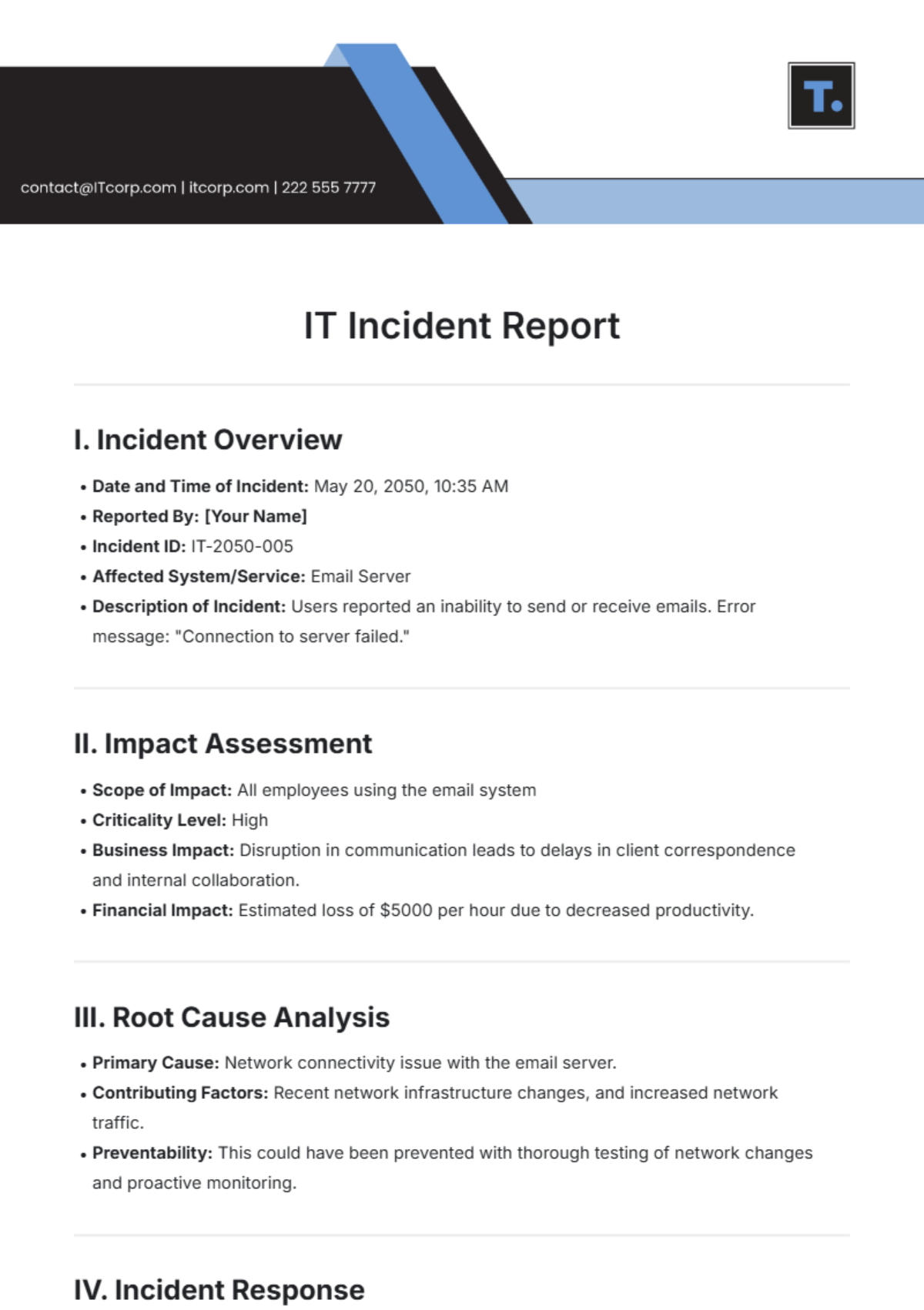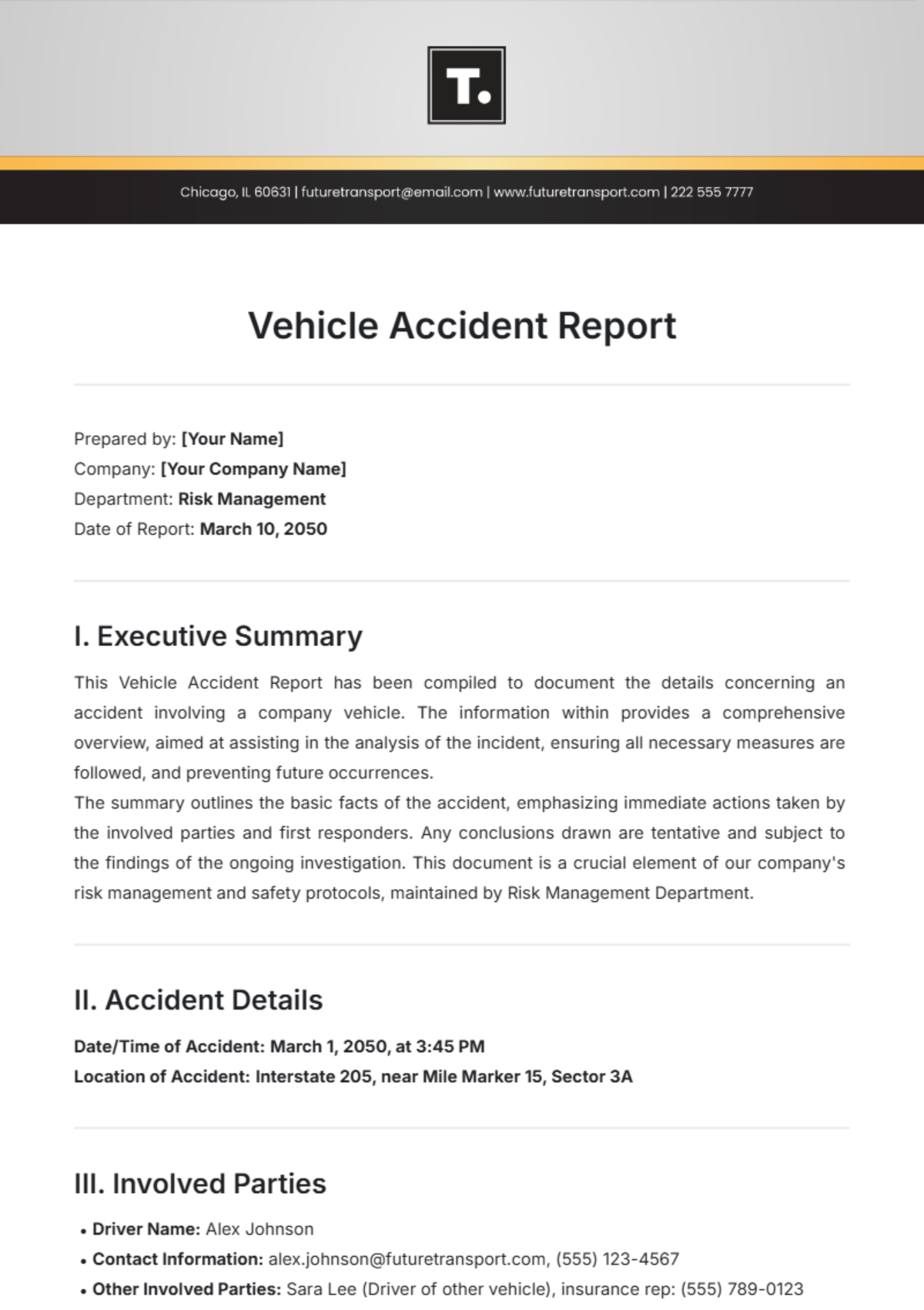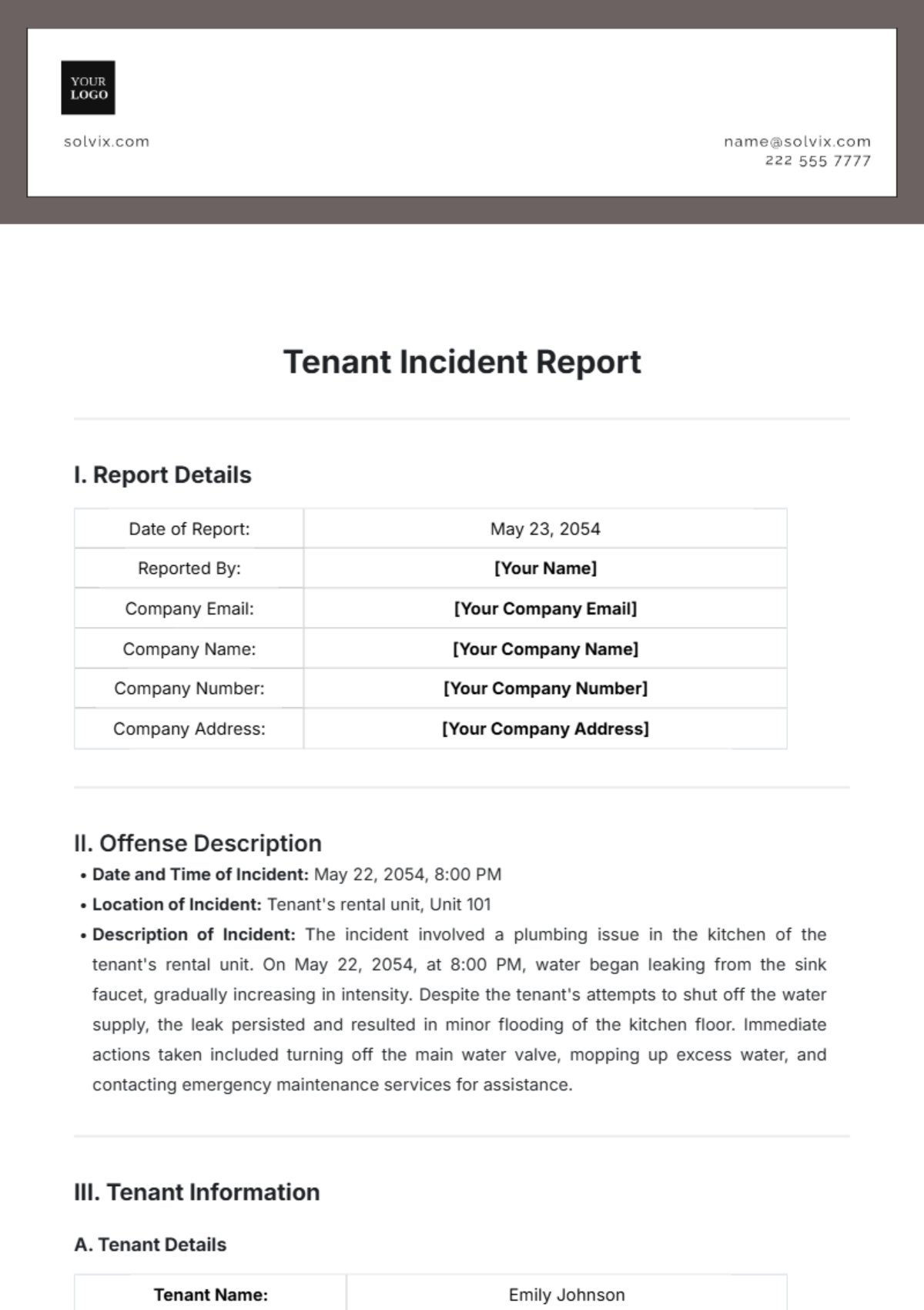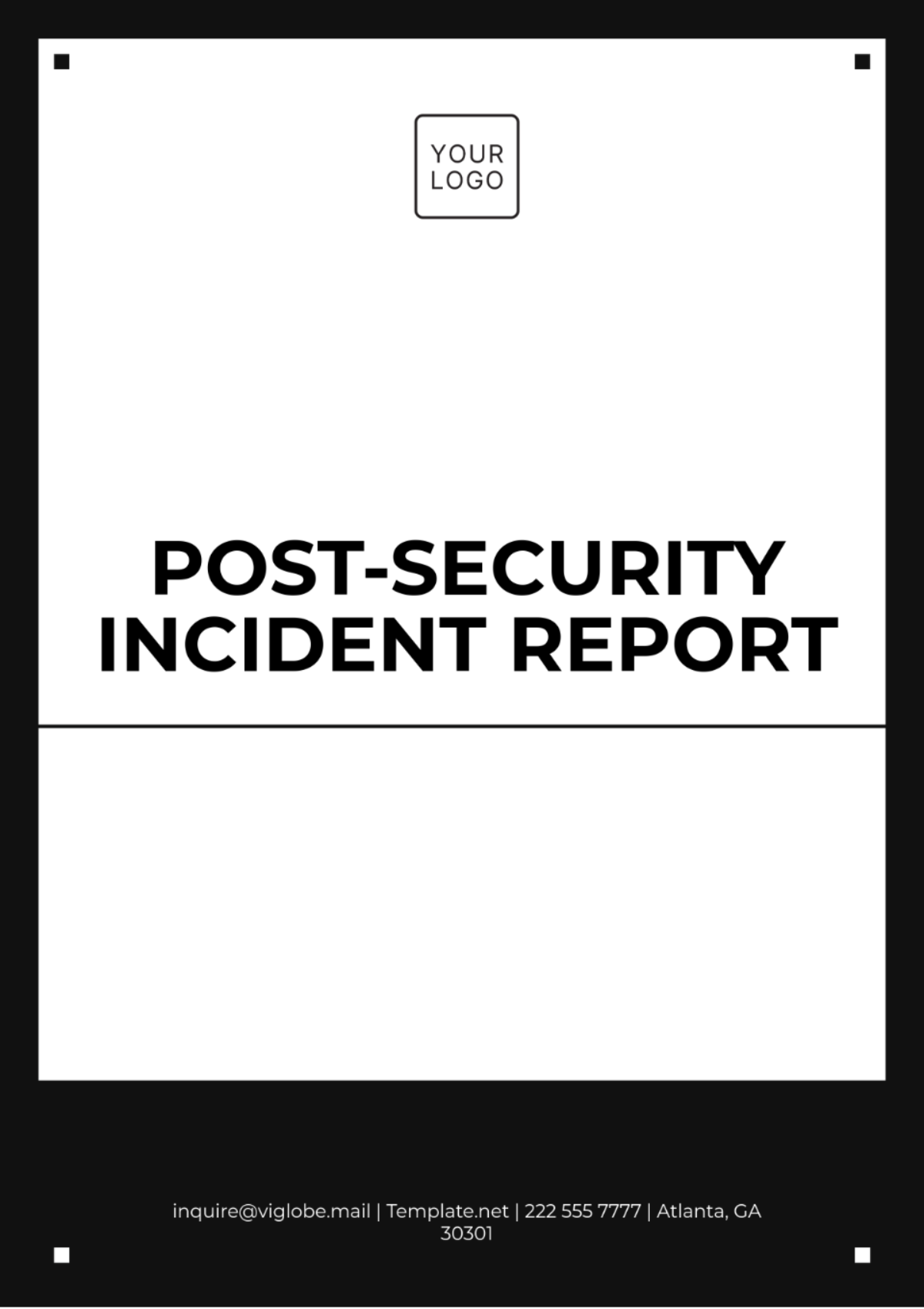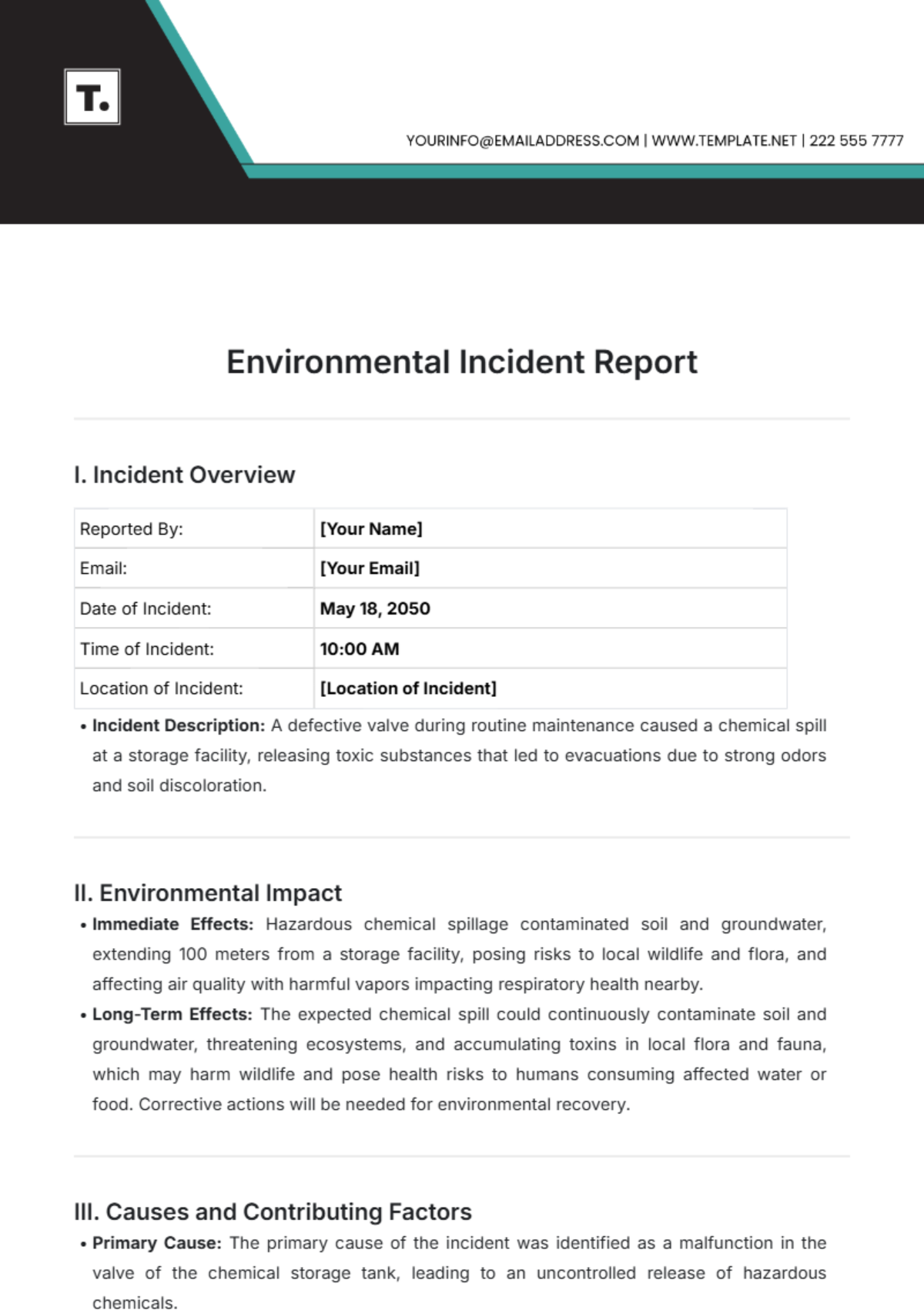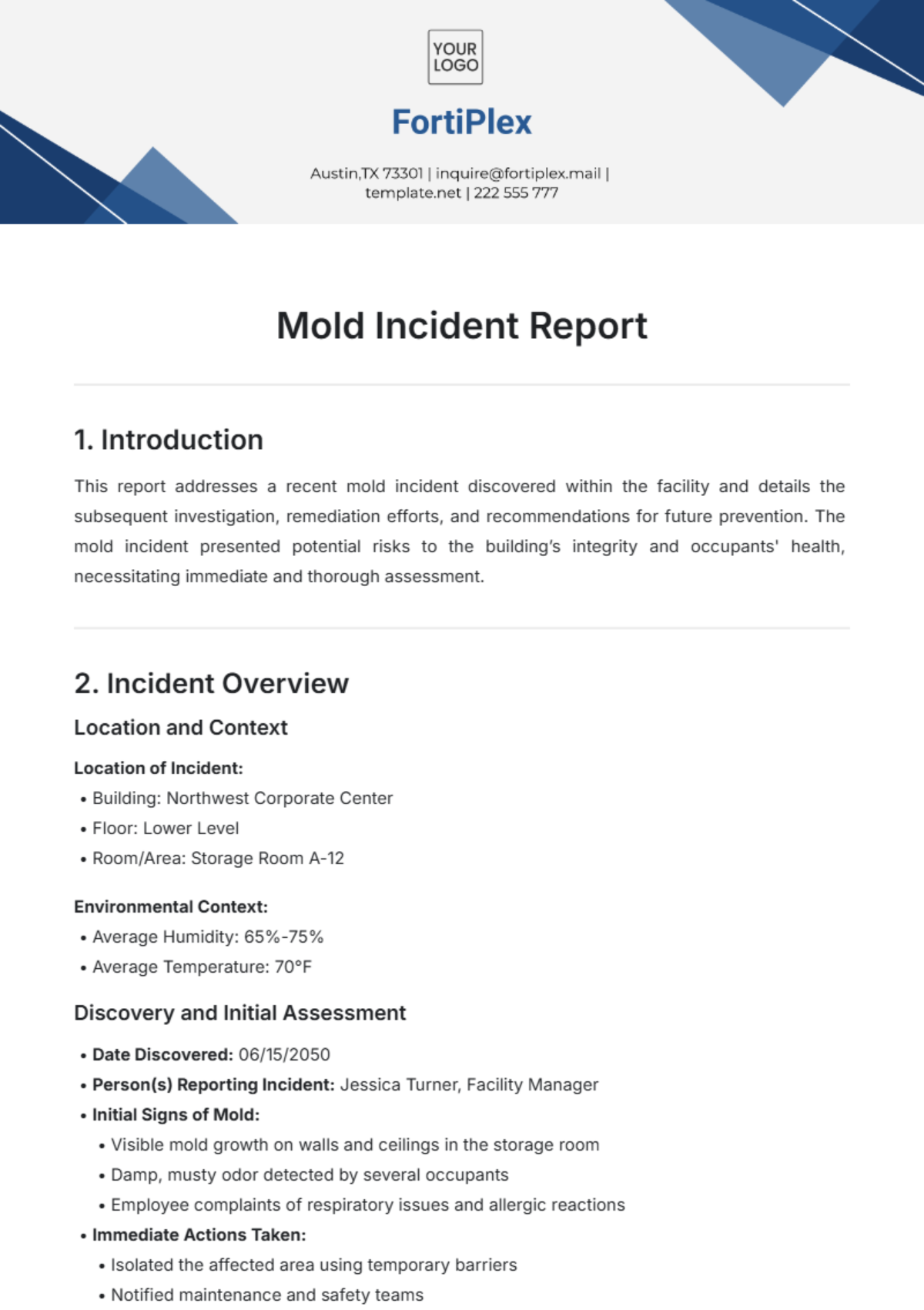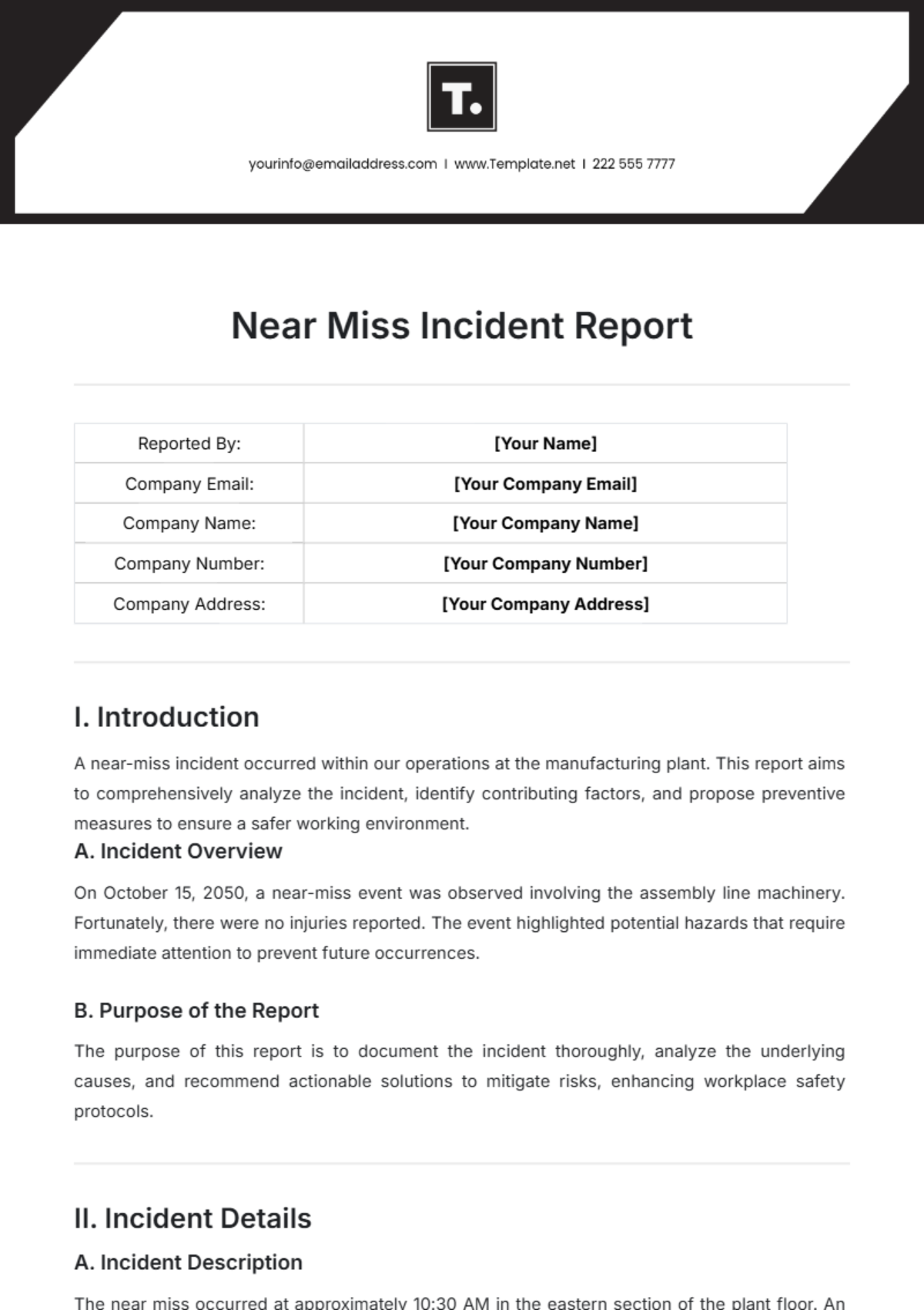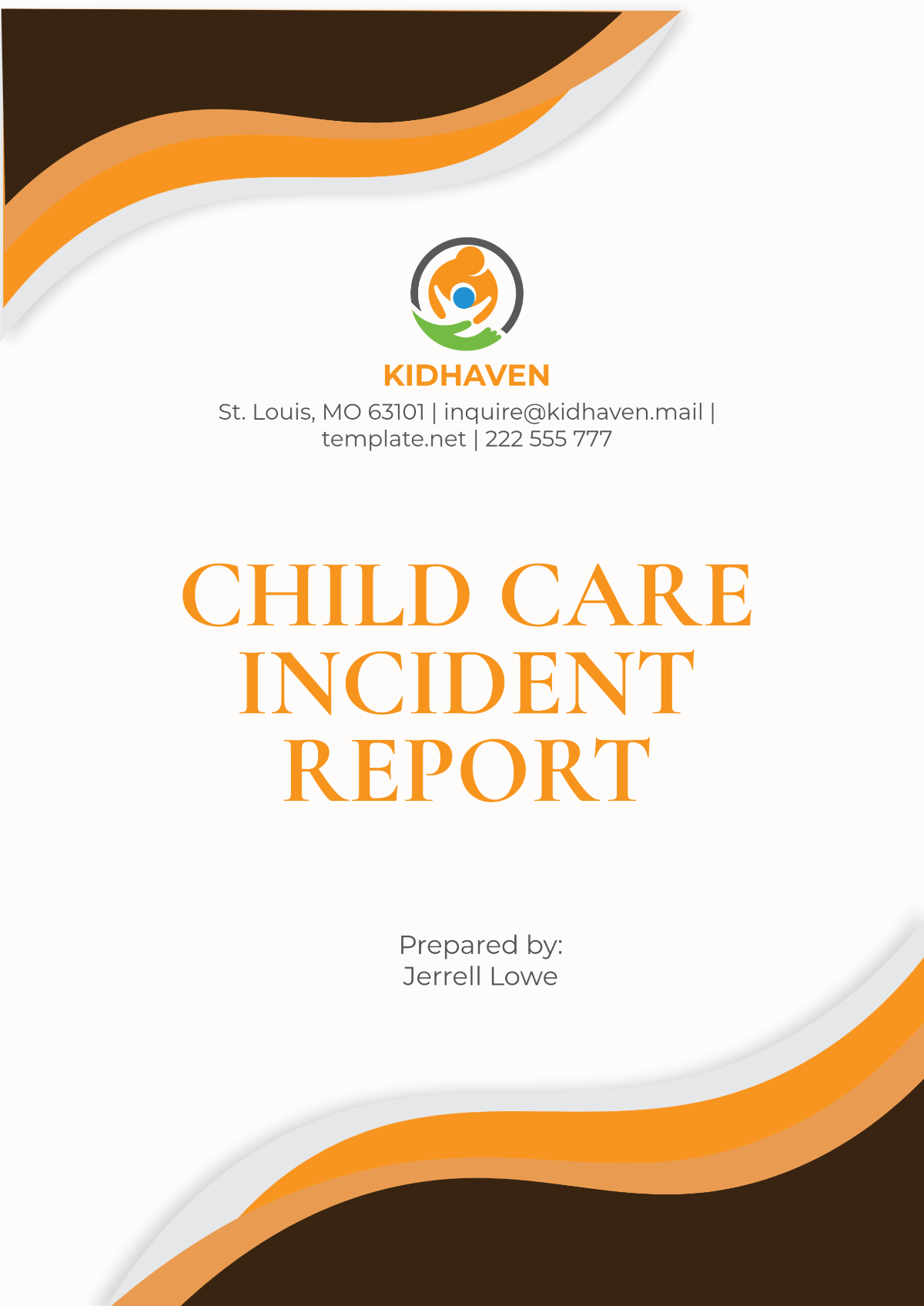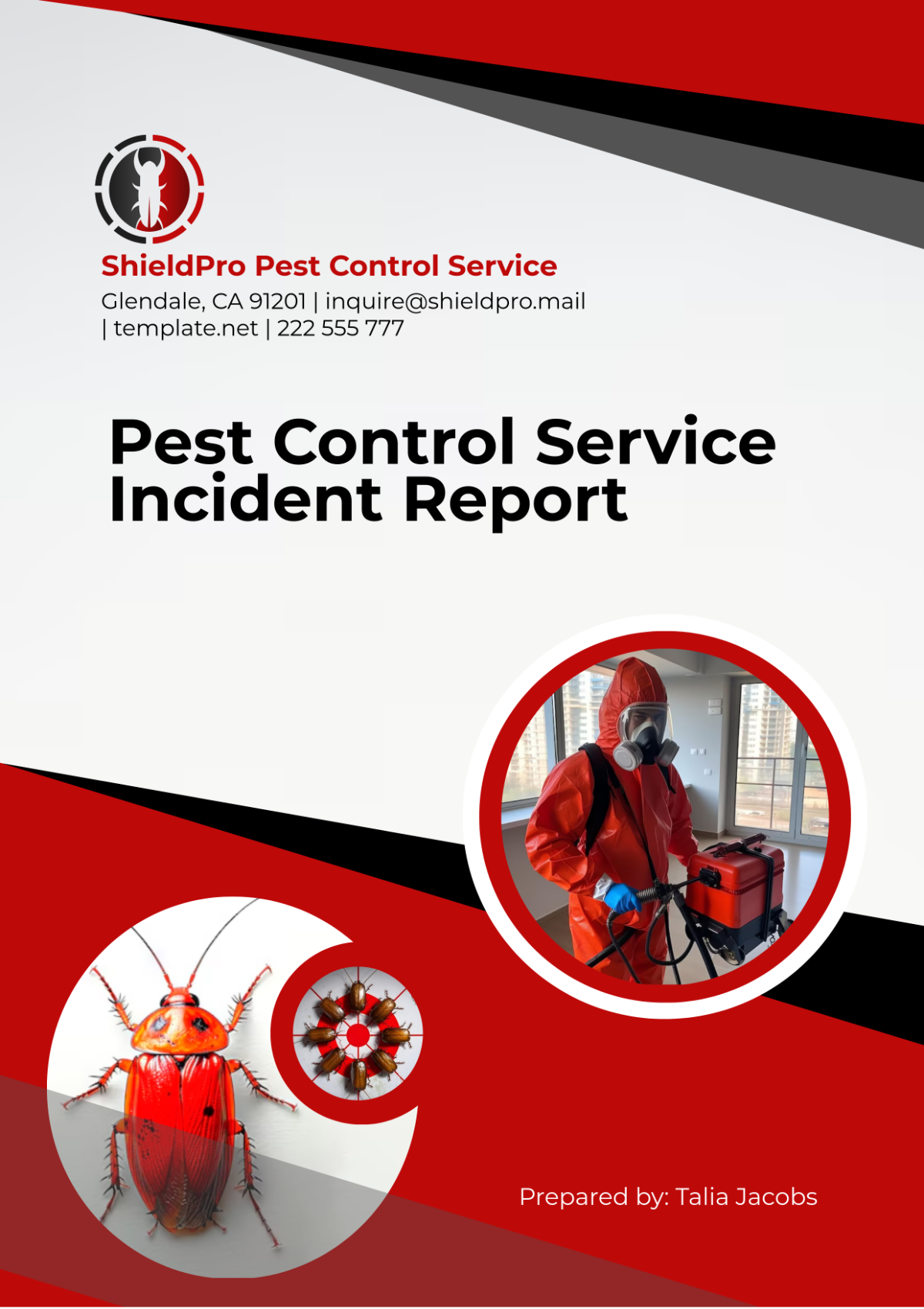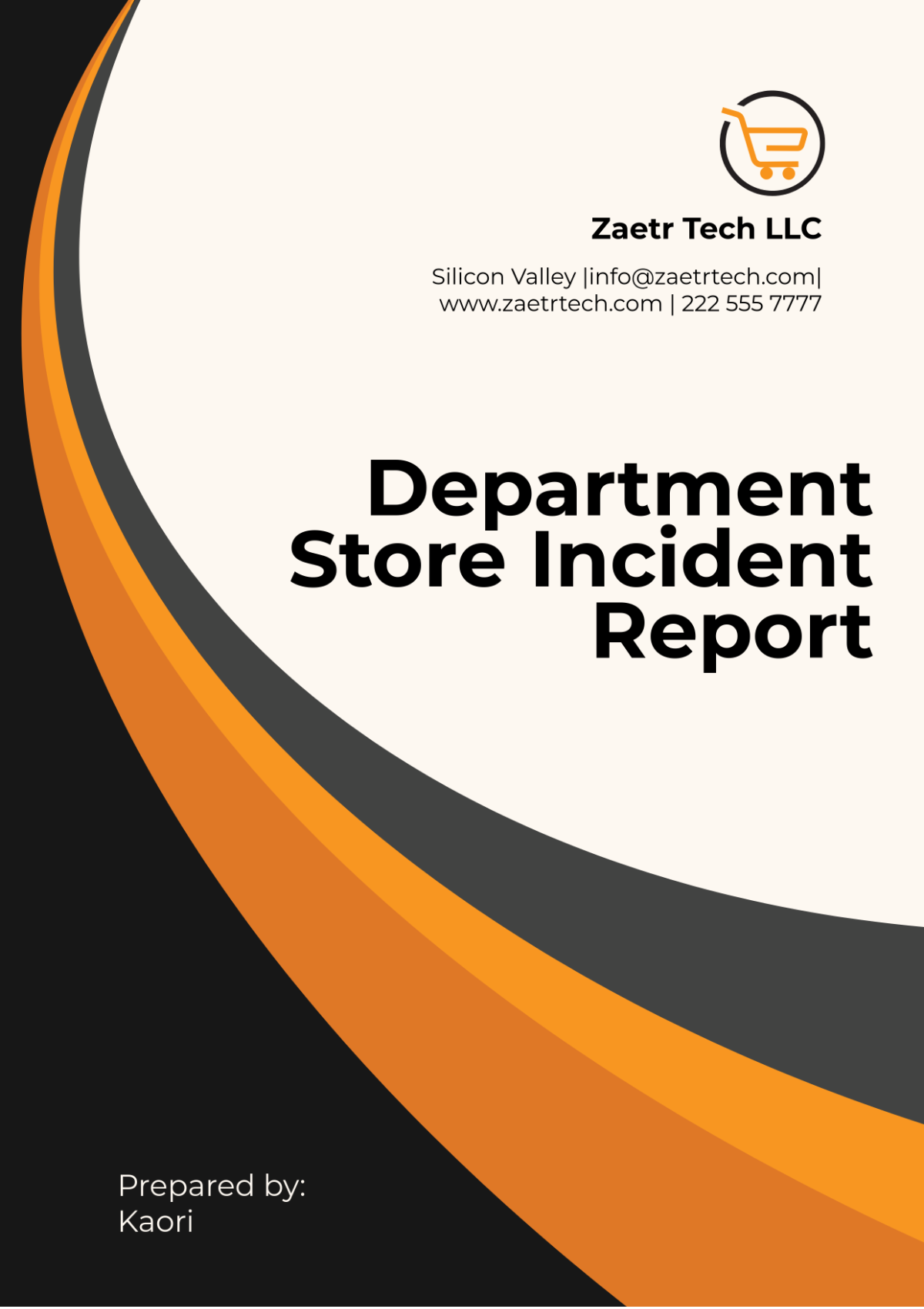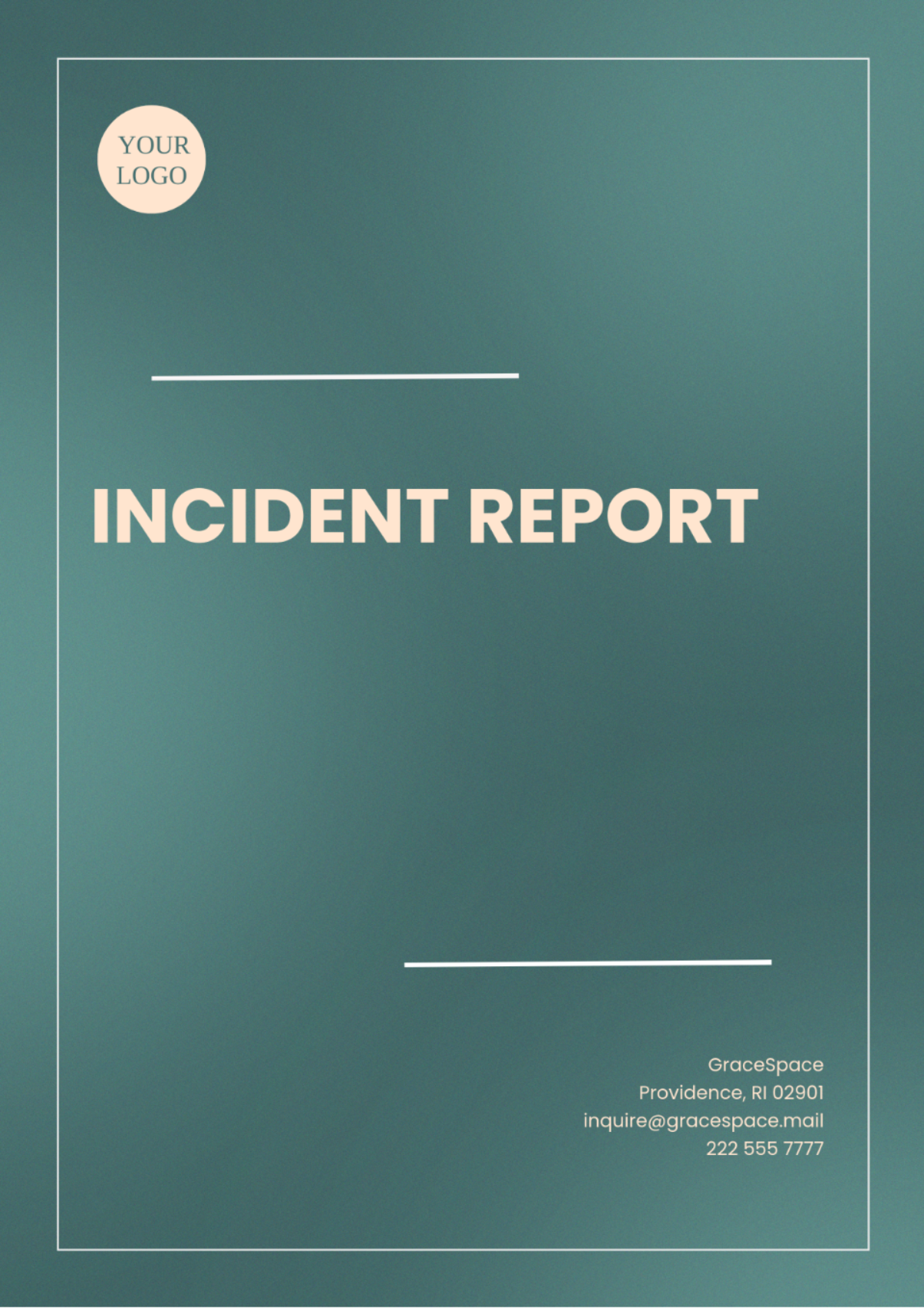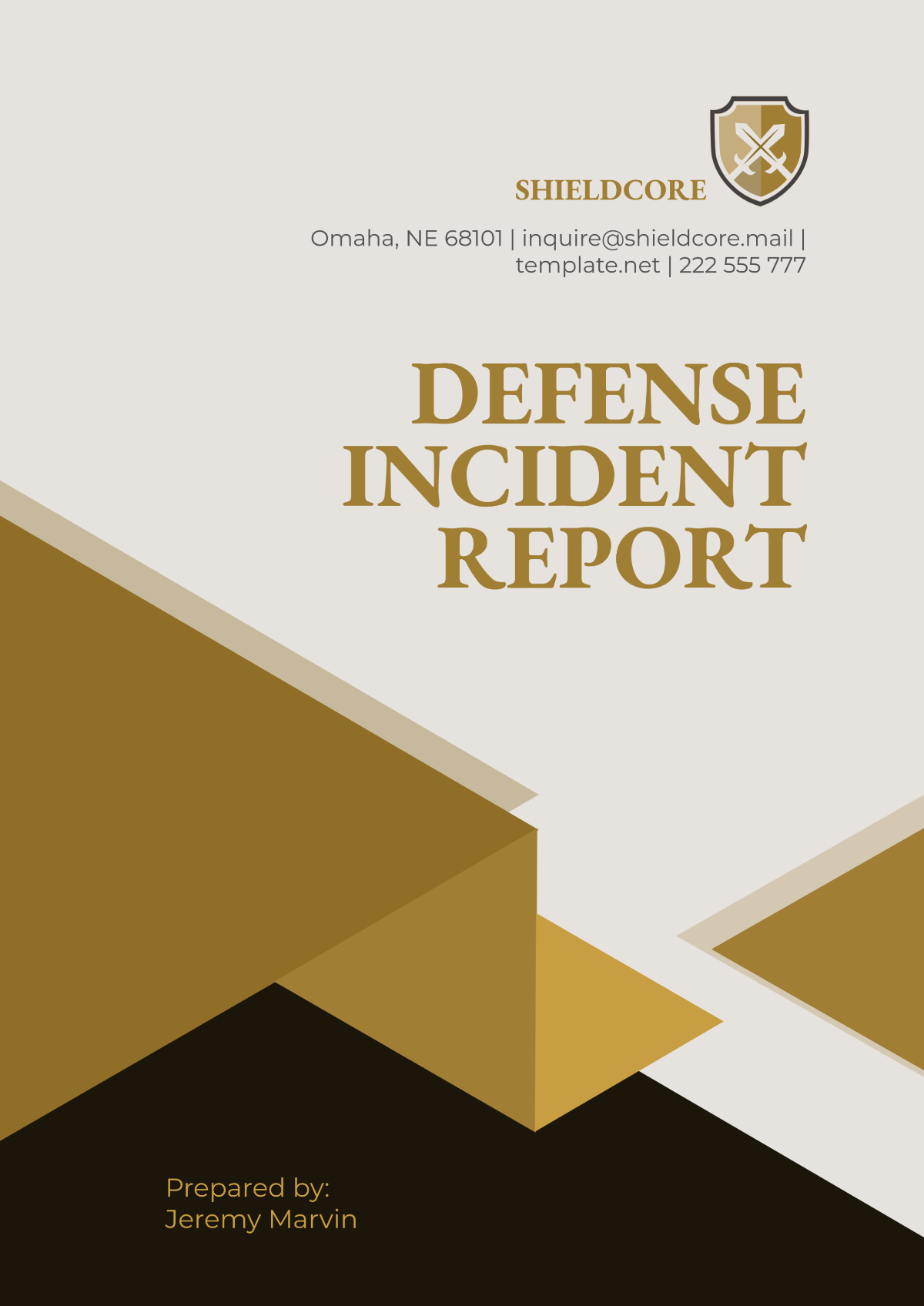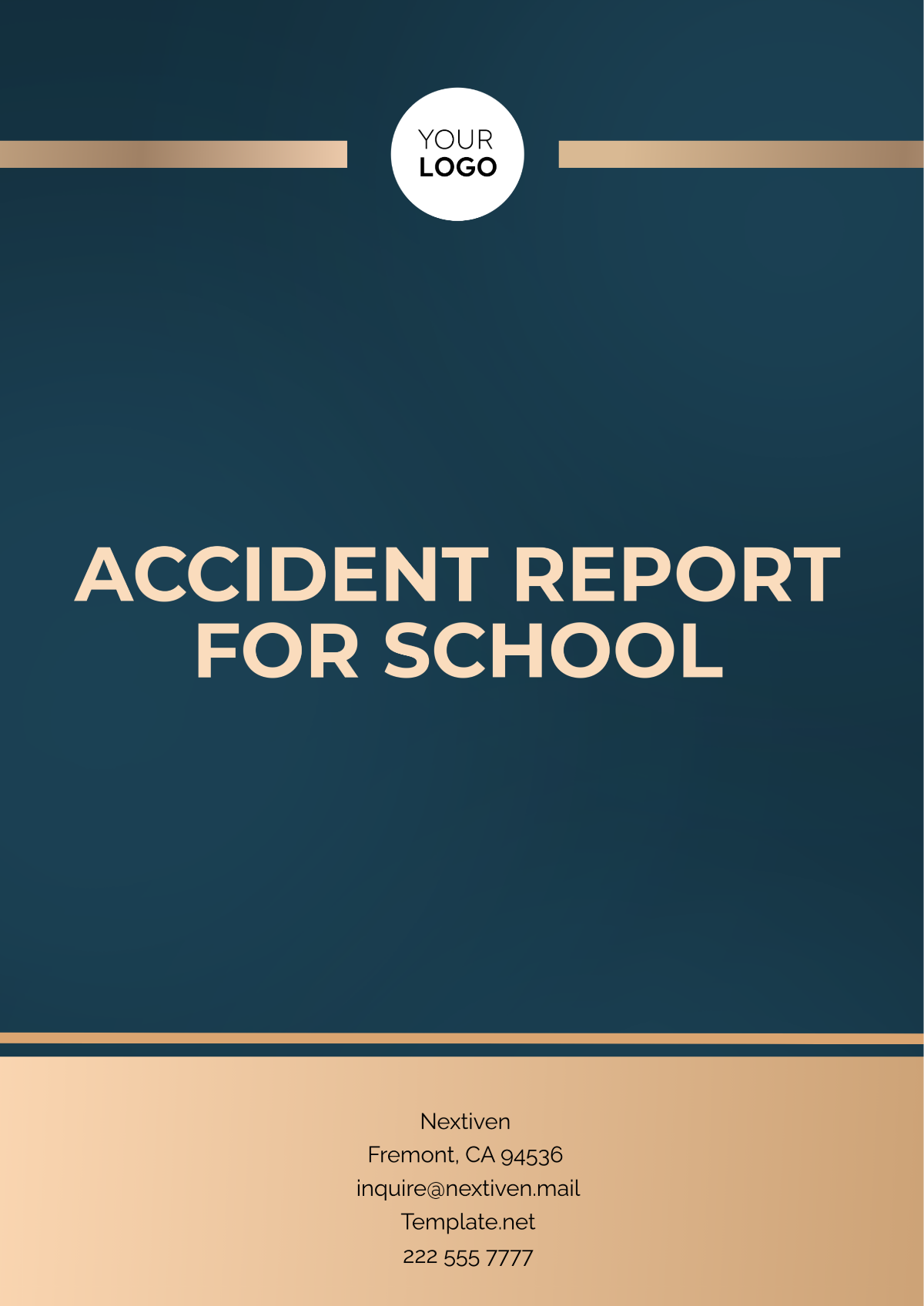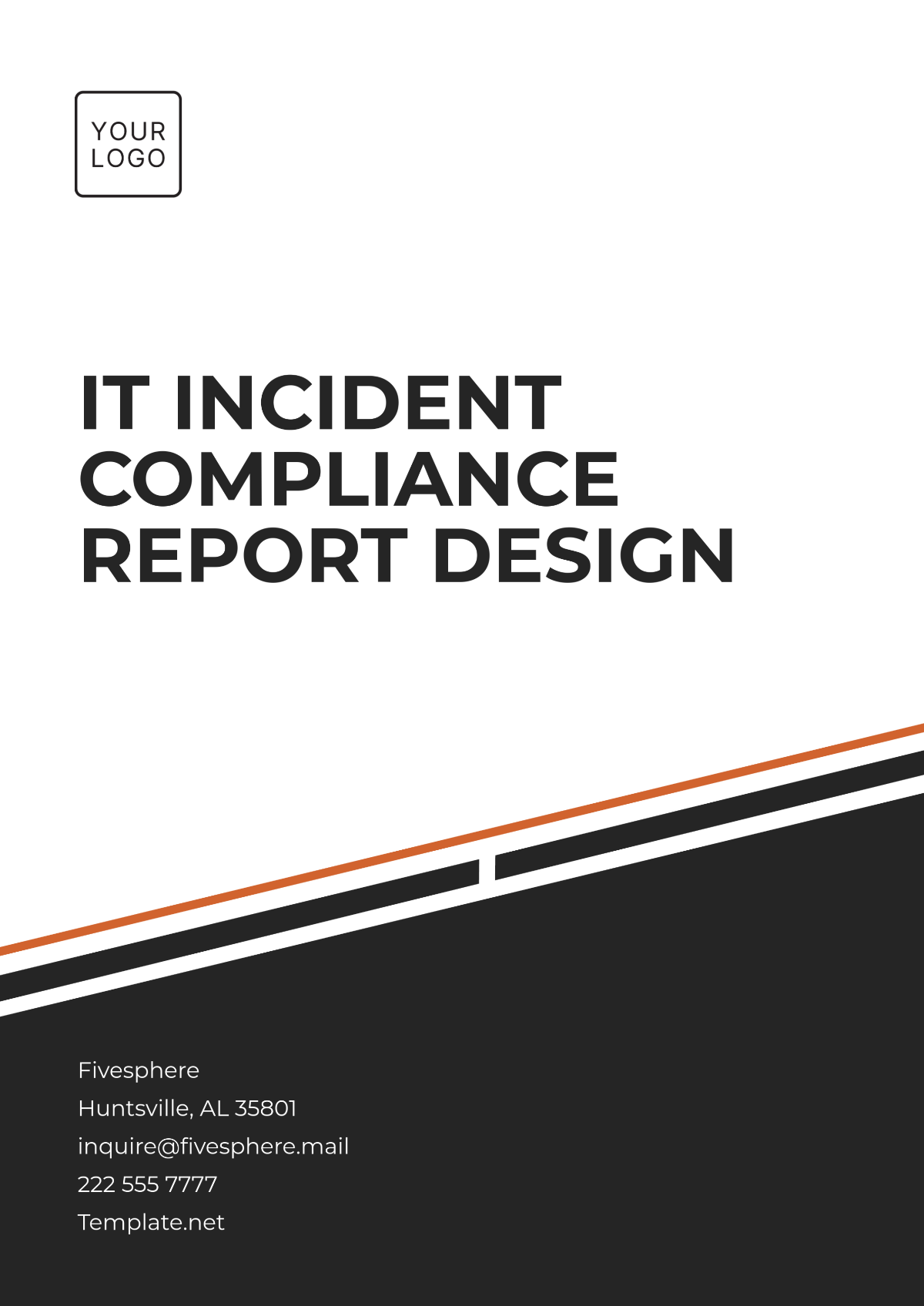Behavior Incident Reporting for Residents
Date: May 15, 2050
Reported By: [YOUR NAME]
Report Number: BIR-2050-001
Location: [YOUR COMPANY NAME]
Resident Involved: [RESIDENT'S NAME]
Room Number: 202
Witnesses:
[WITNESS A'S NAME], Nurse
[WITNESS B'S NAME], Care Aide
I. Incident Details
Attribute | Details |
|---|---|
Date and Time of Incident | May 14, 2050, 10:30 AM |
Description of Incident | During breakfast, Resident [RESIDENT'S NAME] became increasingly agitated. He began shouting profanities at staff members and other residents and then proceeded to throw utensils and plates in the direction of staff. Despite attempts to calm him down, the resident continued his disruptive behavior for approximately 15 minutes until staff were able to safely remove him from the dining area. |
Behavioral Indicators | Elevated voice, throwing objects, aggressive body language |
Immediate Actions Taken | The nursing team, along with several care aides, immediately intervened to ensure the safety of all residents and staff. The resident was escorted to a quiet area away from other residents, where his behavior was closely monitored. A brief medical assessment was conducted to ensure he had not sustained any injuries during the incident. |
II. Resident Information
Attribute | Details |
|---|---|
Name | [RESIDENT'S NAME] |
Date of Birth | January 10, 1935 |
Room Number | 202 |
Medical Conditions | Hypertension, Dementia |
Medications | Lisinopril, Donepezil |
Allergies | None |
III. Witness Statements
Witness 1: Sarah Martinez, Nurse
Attribute | Details |
|---|---|
Position | Registered Nurse |
Statement | During breakfast, I observed [RESIDENT'S NAME] becoming increasingly agitated. He was shouting and throwing utensils, creating a potentially dangerous situation for staff and residents alike. Immediate intervention was necessary to ensure everyone's safety. |
Witness 2: David Thompson, Care Aide
Attribute | Details |
|---|---|
Position | Care Aide |
Statement | I assisted in managing the resident's behavior during the incident. Despite our efforts to calm him down, he remained highly agitated. It was clear that additional support was needed to safely remove him from the dining area. |
IV. Action Taken
Action | Details |
|---|---|
Staff Intervention | Prompt de-escalation and safety assurance |
Escort to Quiet Area | Removed the resident from the dining area |
Medical Assessment | Brief assessment to ensure physical well-being |
Follow-up Actions:
Action | Details |
|---|---|
Increased Monitoring | Enhanced observation of [RESIDENT'S NAME]'s behavior |
Consultation with Behavioral Specialist | Collaborative planning for personalized care |
Family Notification | Informed family members and scheduled meeting |
V. Recommendations
Implement additional staff training sessions focusing on de-escalation techniques and managing challenging behaviors in residents with dementia.
Review and update [RESIDENT'S NAME]'s care plan to include specific interventions for addressing episodes of agitation, including potential medication adjustments or therapeutic activities.
Evaluate the dining hall environment to identify potential triggers for resident agitation during meal times and implement strategies to minimize stressors.
VI. Review and Approval
Reviewed By: [REVIEWER'S NAME]
Date of Review: May 15, 2050
Approved By: [APPROVER'S NAME]
Date of Approval: May 16, 2050
VII. Follow-up Communication
Family/Responsible Party Notification:
[RESIDENT'S NAME]'s family members were promptly notified of the incident and the actions taken to address it. A family meeting was scheduled to provide further information and discuss any concerns or questions they may have.
Resident Follow-up:
Following the incident, the resident was visited by the facility's social worker to address any emotional distress he may have experienced. Additional support and counseling were offered as needed.
VIII. Incident Analysis
Root Cause Analysis:
Further investigation into the incident revealed that a recent change in [RESIDENT'S NAME]'s medication regimen may have contributed to his heightened agitation and aggressive behavior. This underscores the importance of closely monitoring medication changes and their potential impact on resident behavior.
Lessons Learned:
The incident highlighted the need for ongoing staff training in recognizing and managing behavioral changes in residents with dementia.
It emphasized the importance of implementing personalized care plans that address the unique needs and triggers of each resident, particularly those with cognitive impairments.
Quality Improvement Plan:
As part of our quality improvement efforts, we will be implementing a protocol for conducting thorough medication reviews and assessments following any behavioral incidents involving residents. Additionally, we will continue to provide staff education and training opportunities to enhance our ability to provide safe and effective care to all residents.
